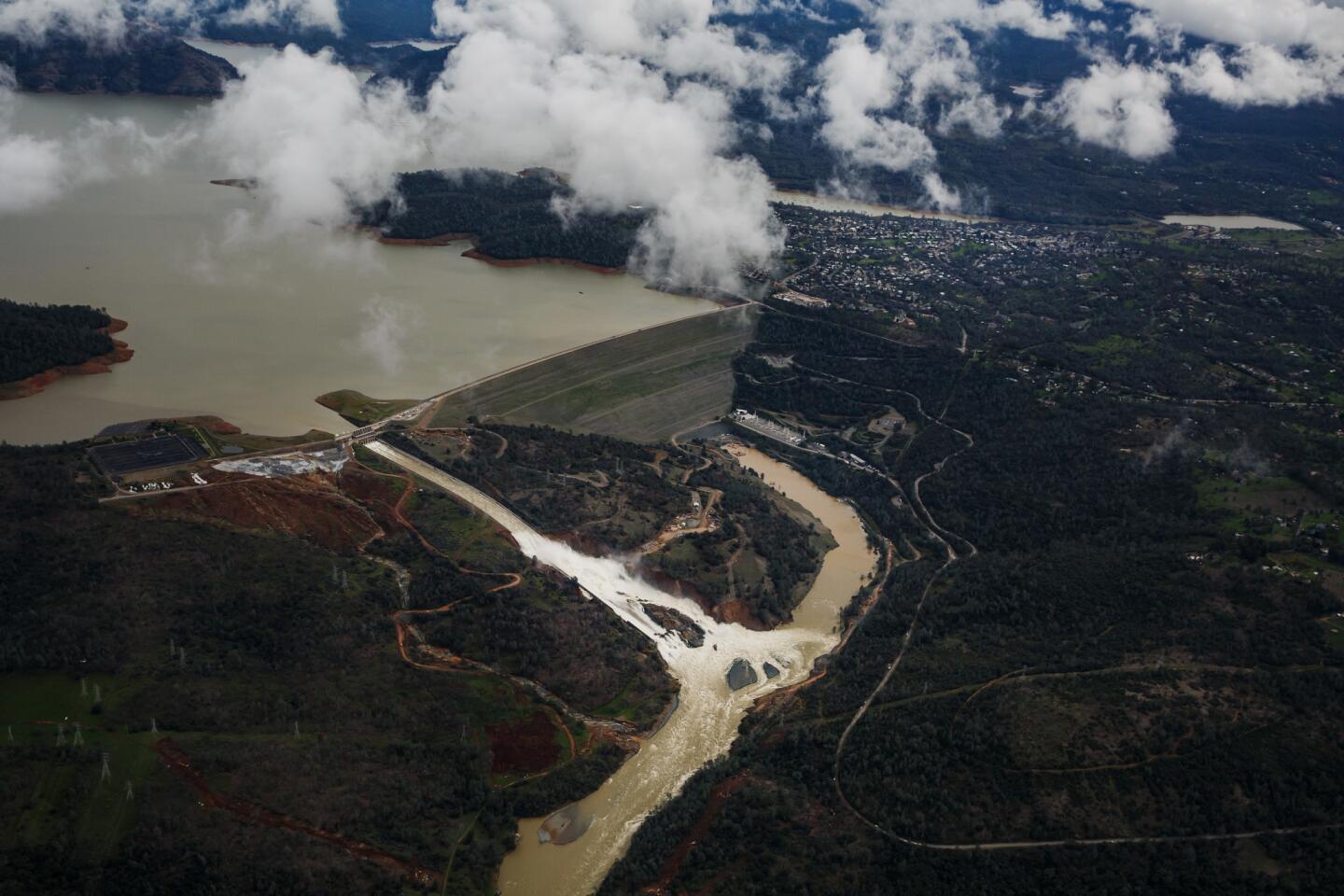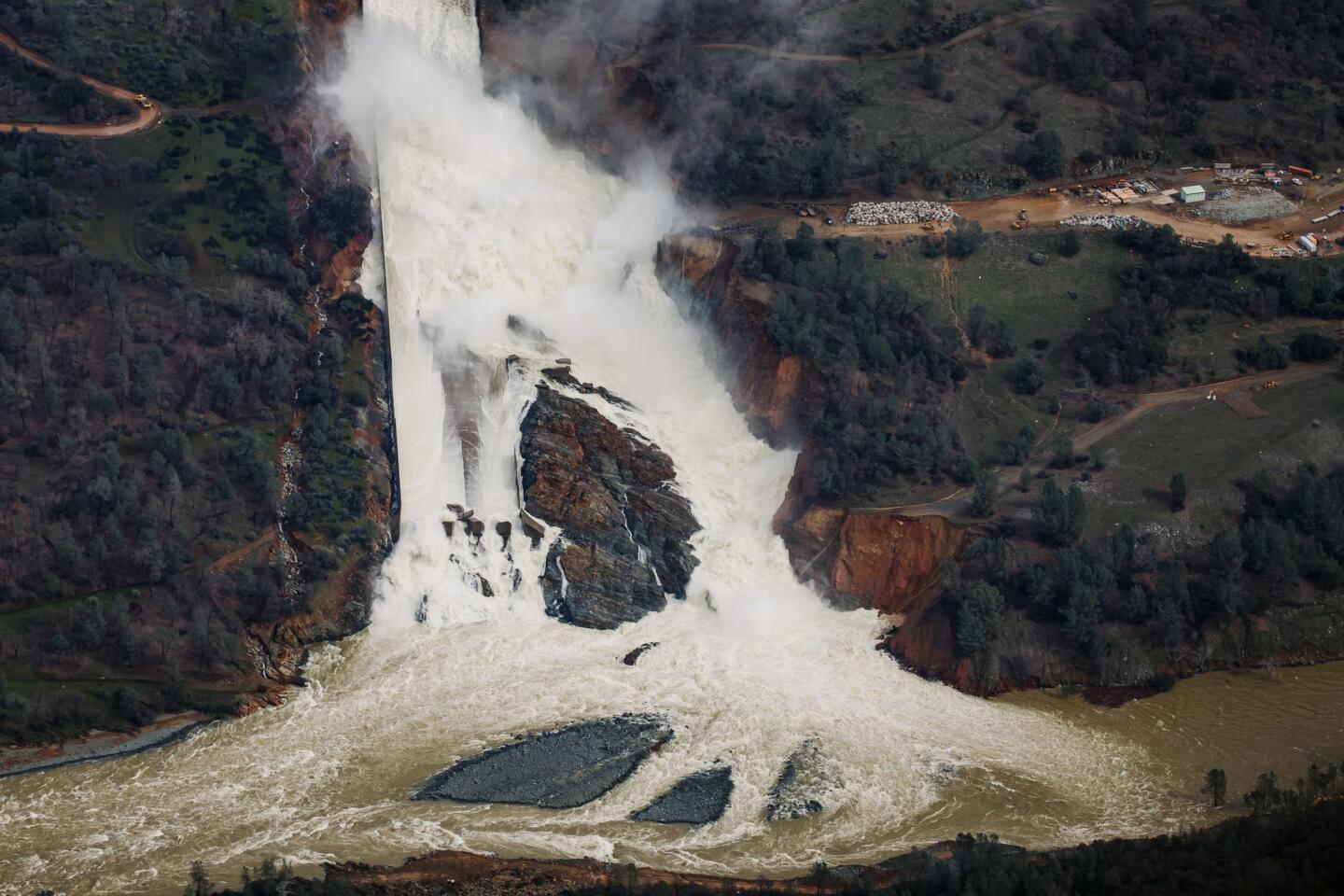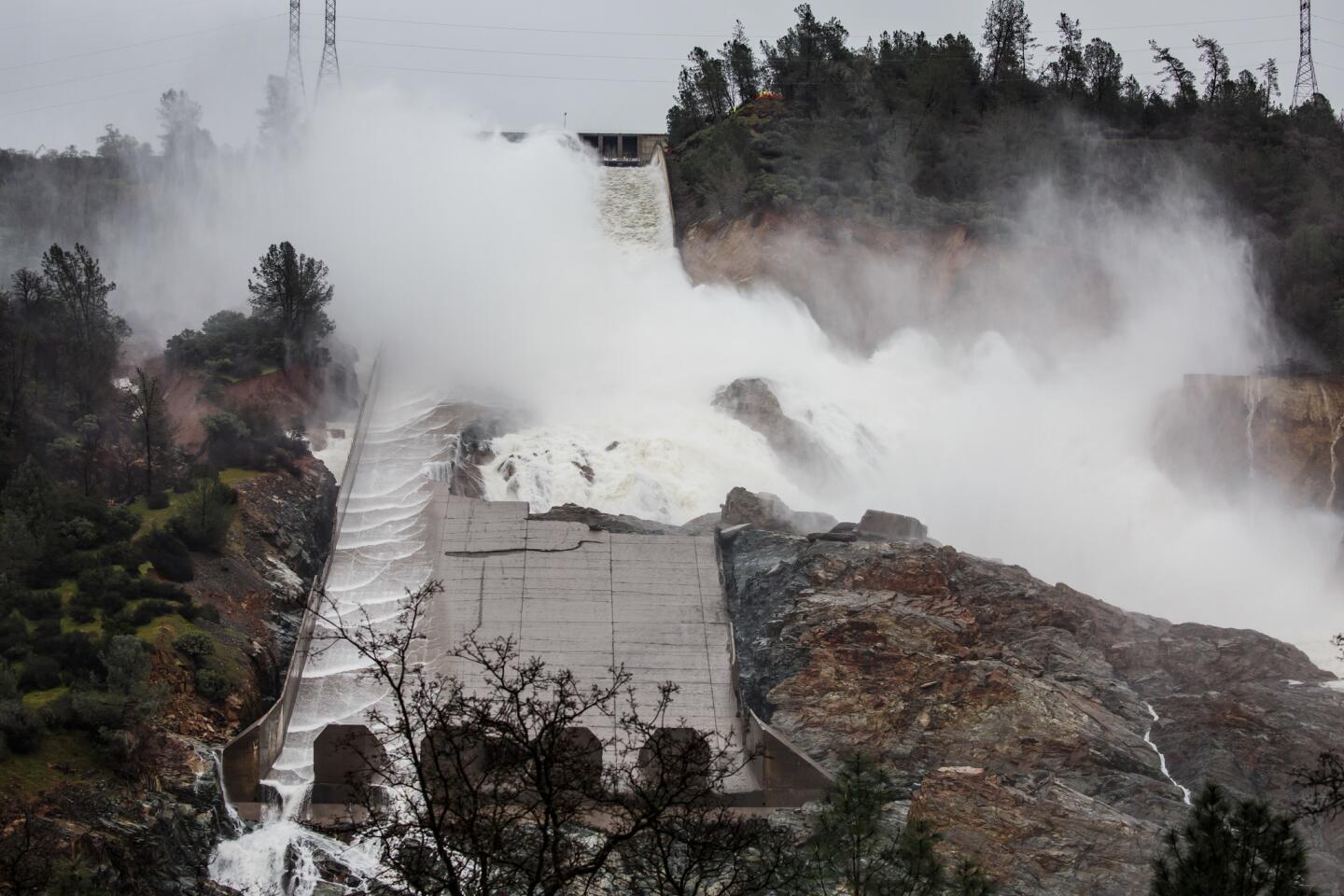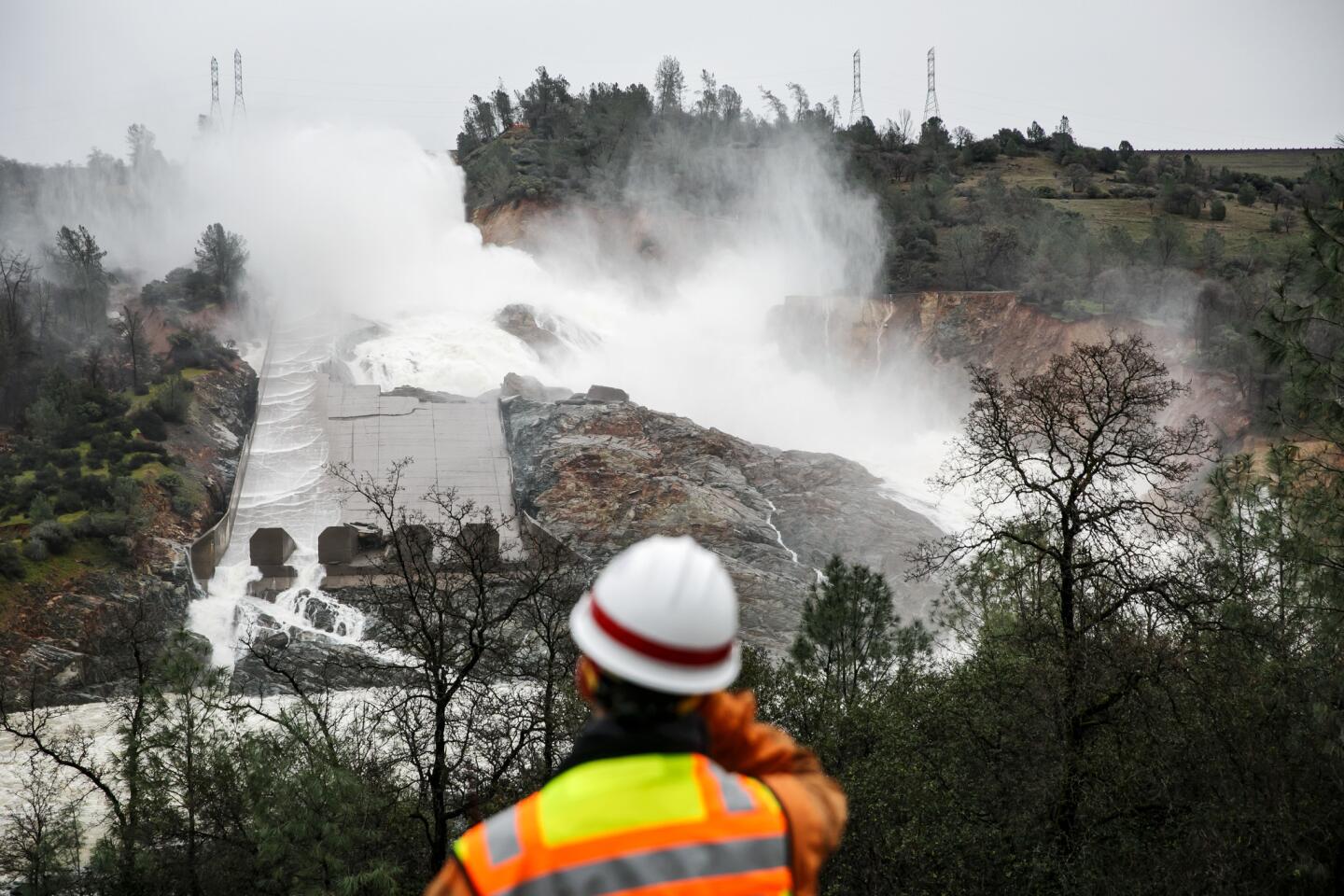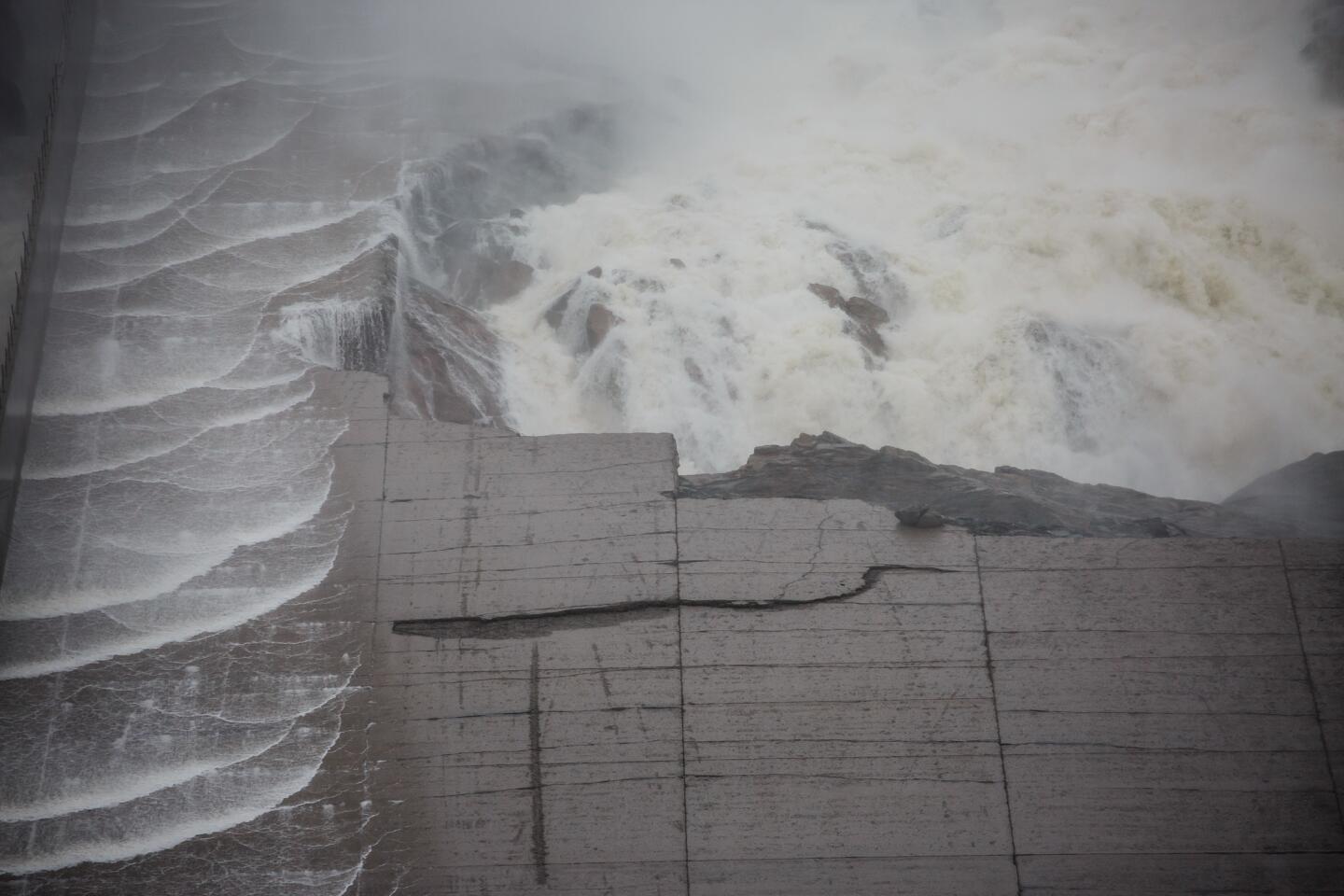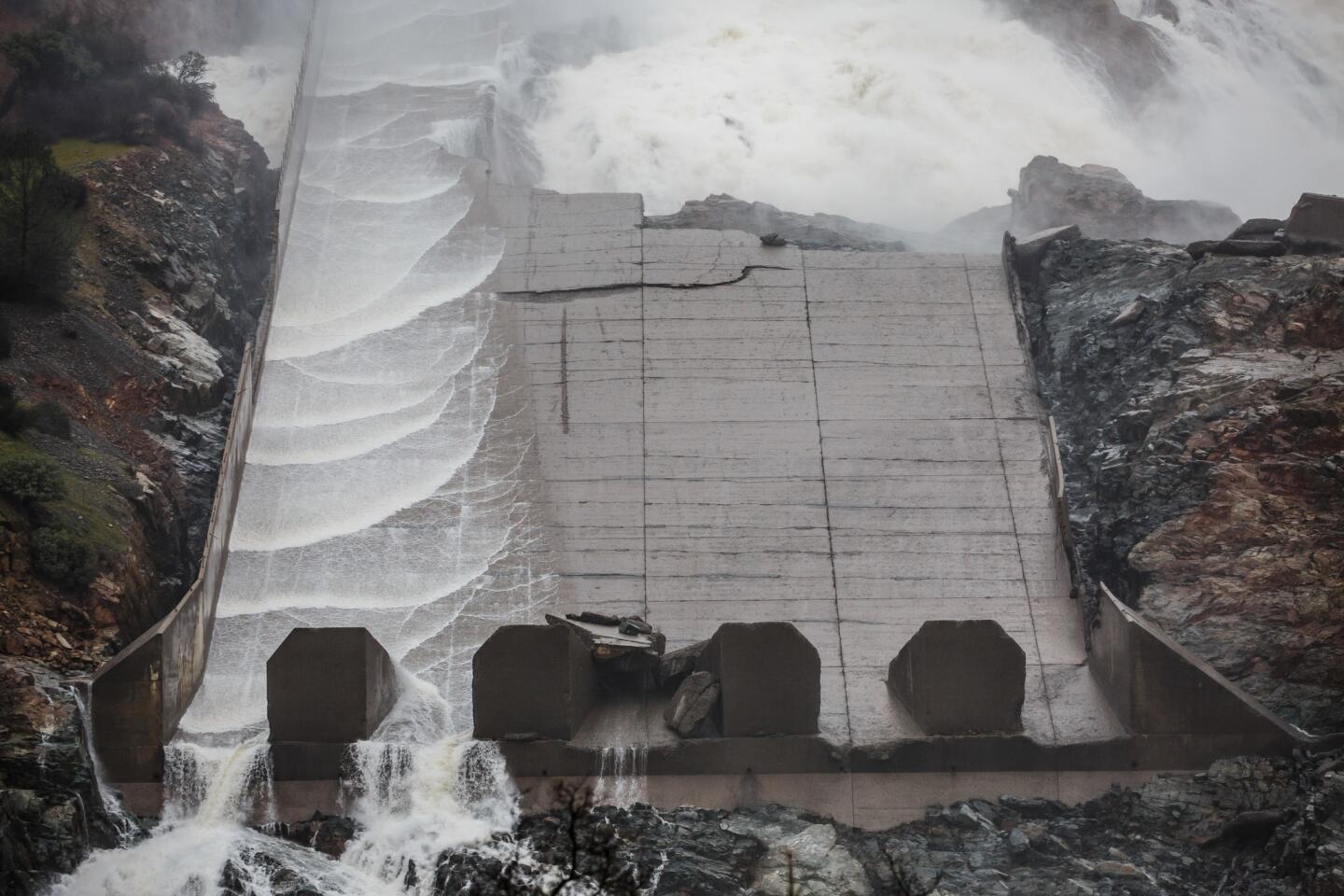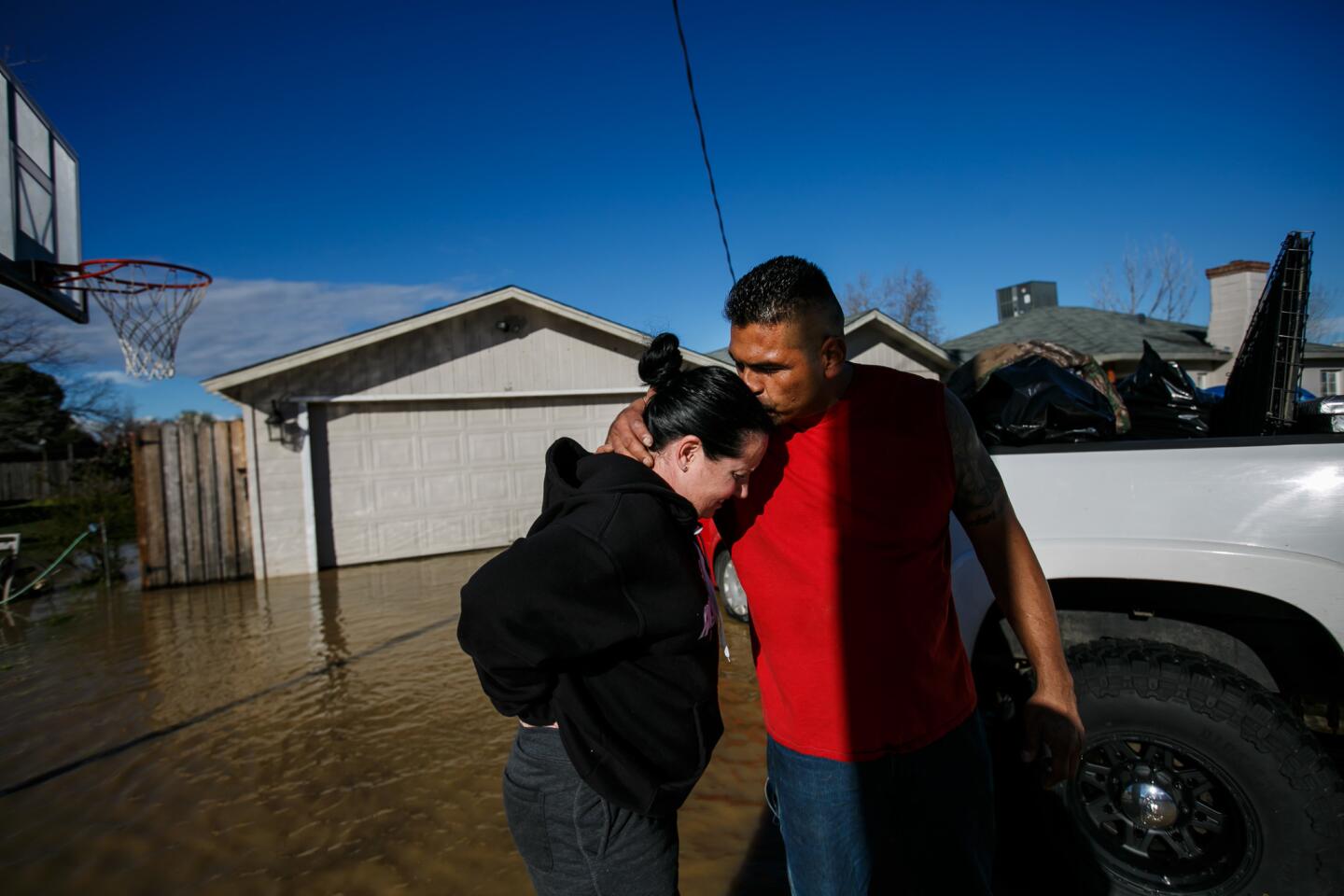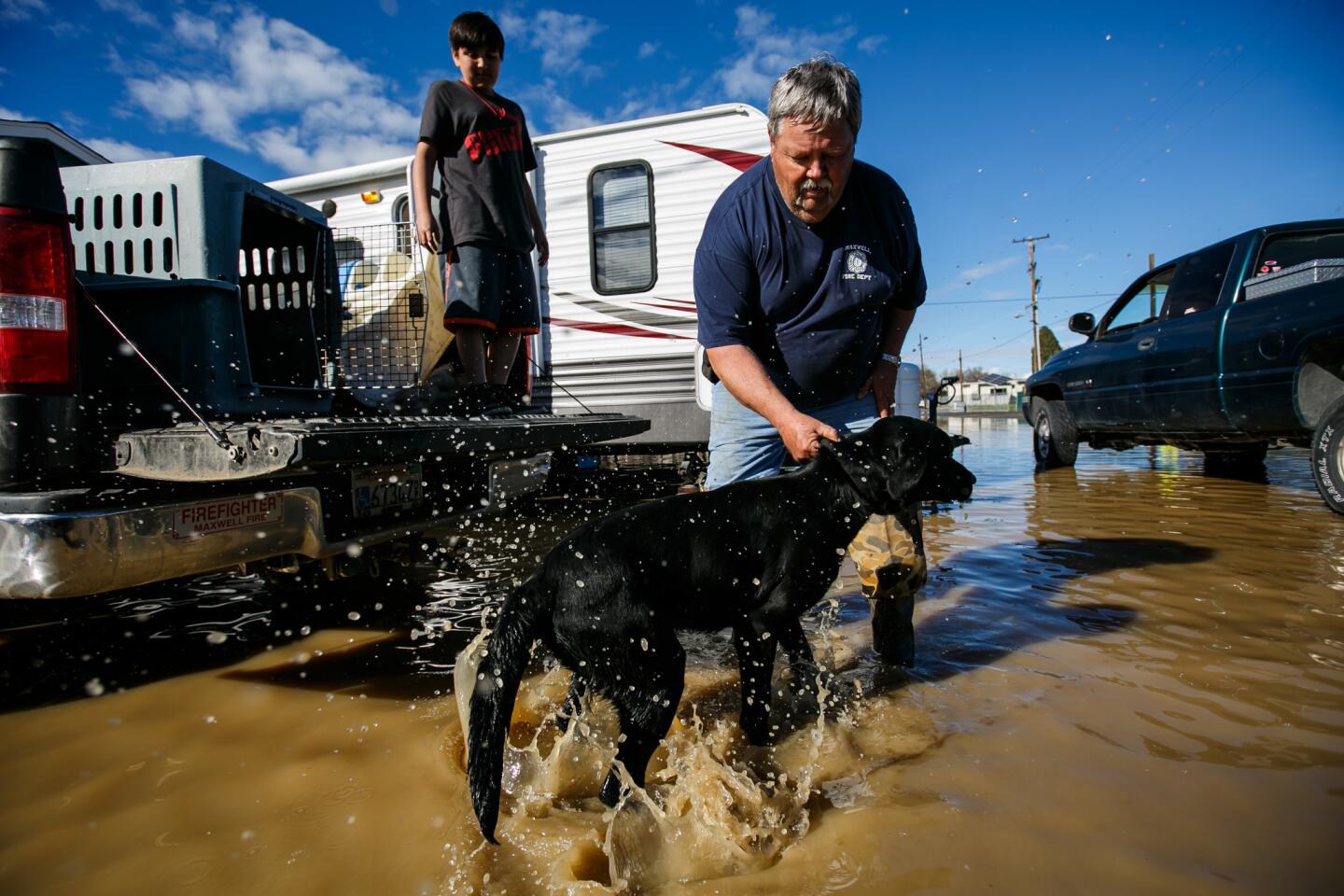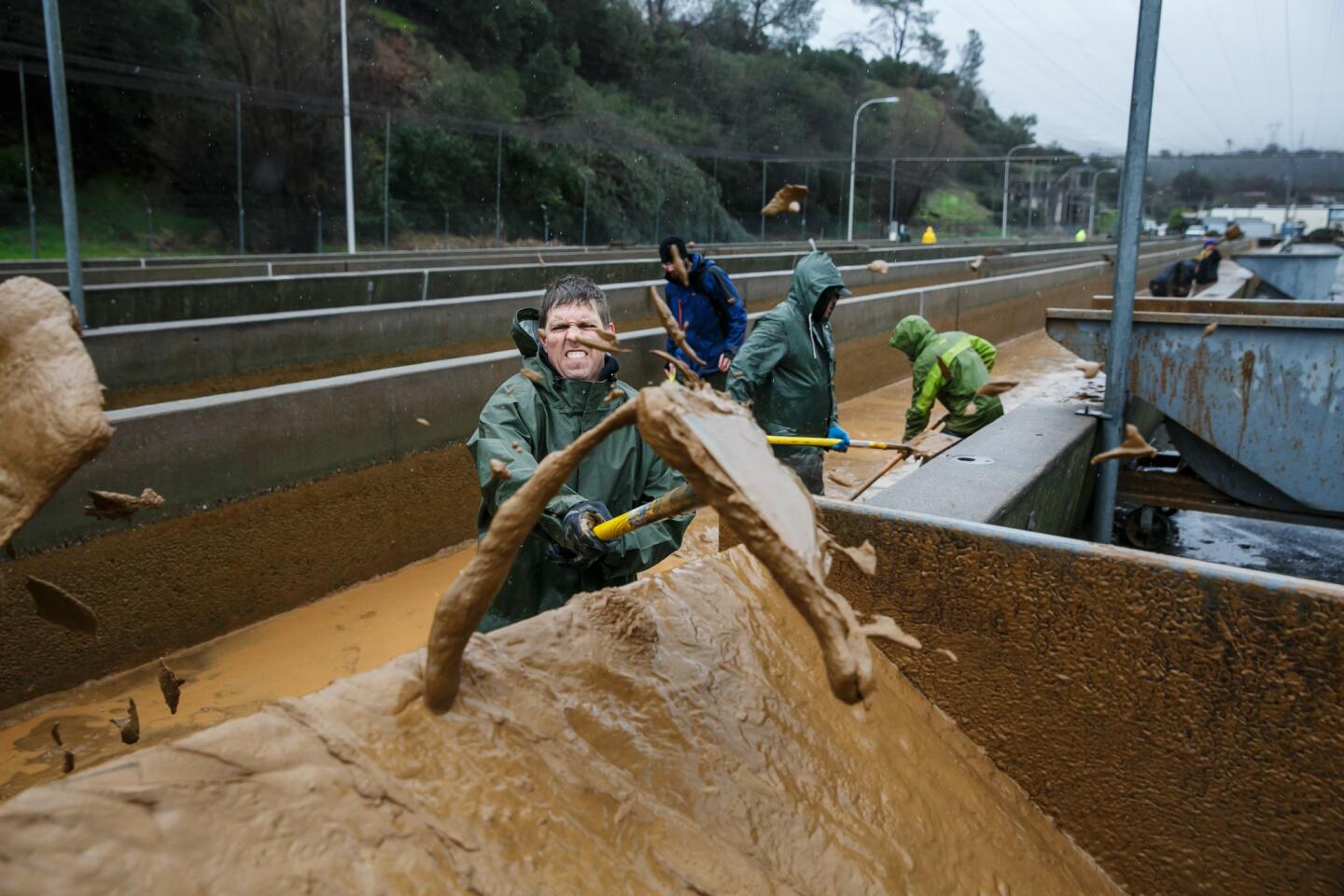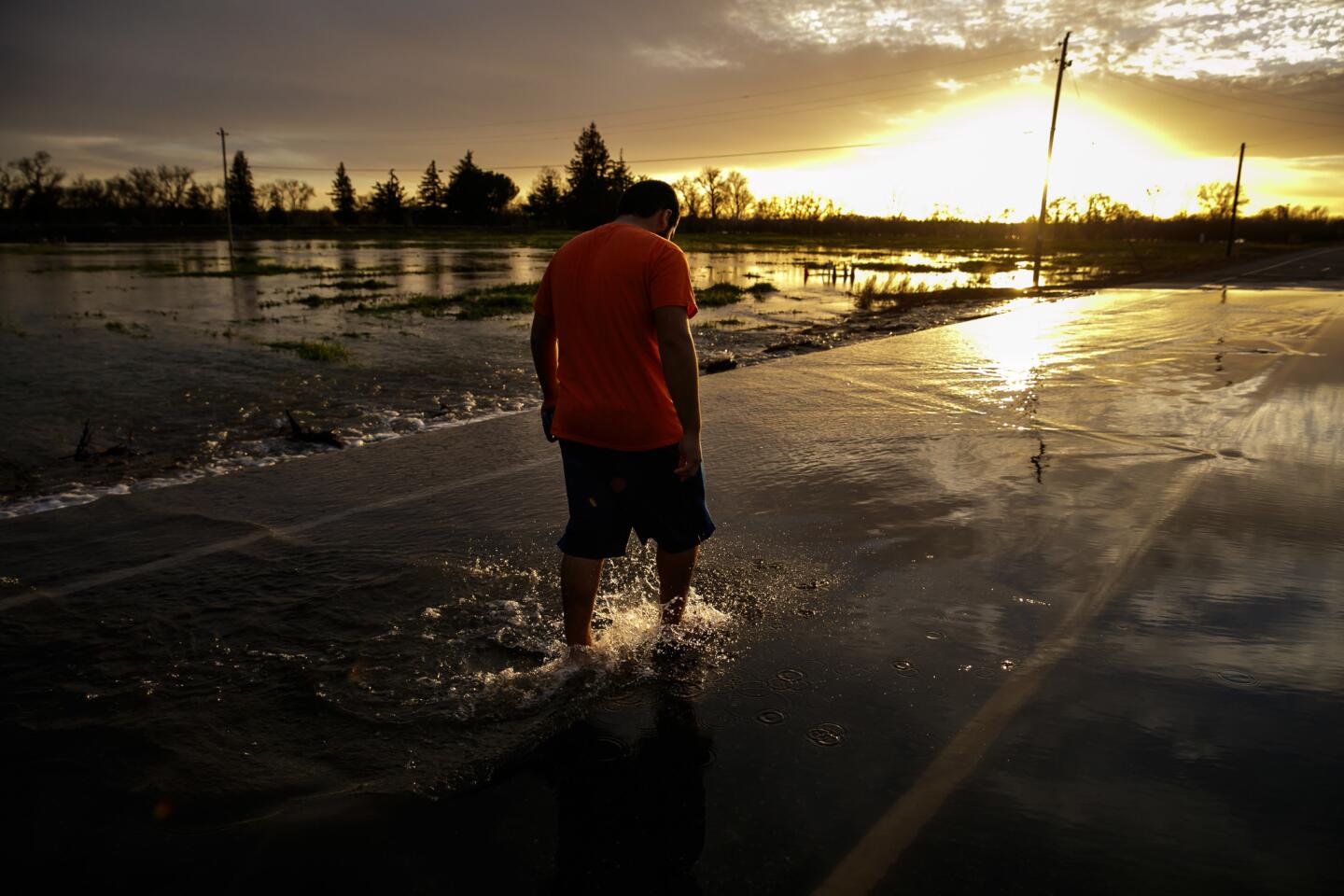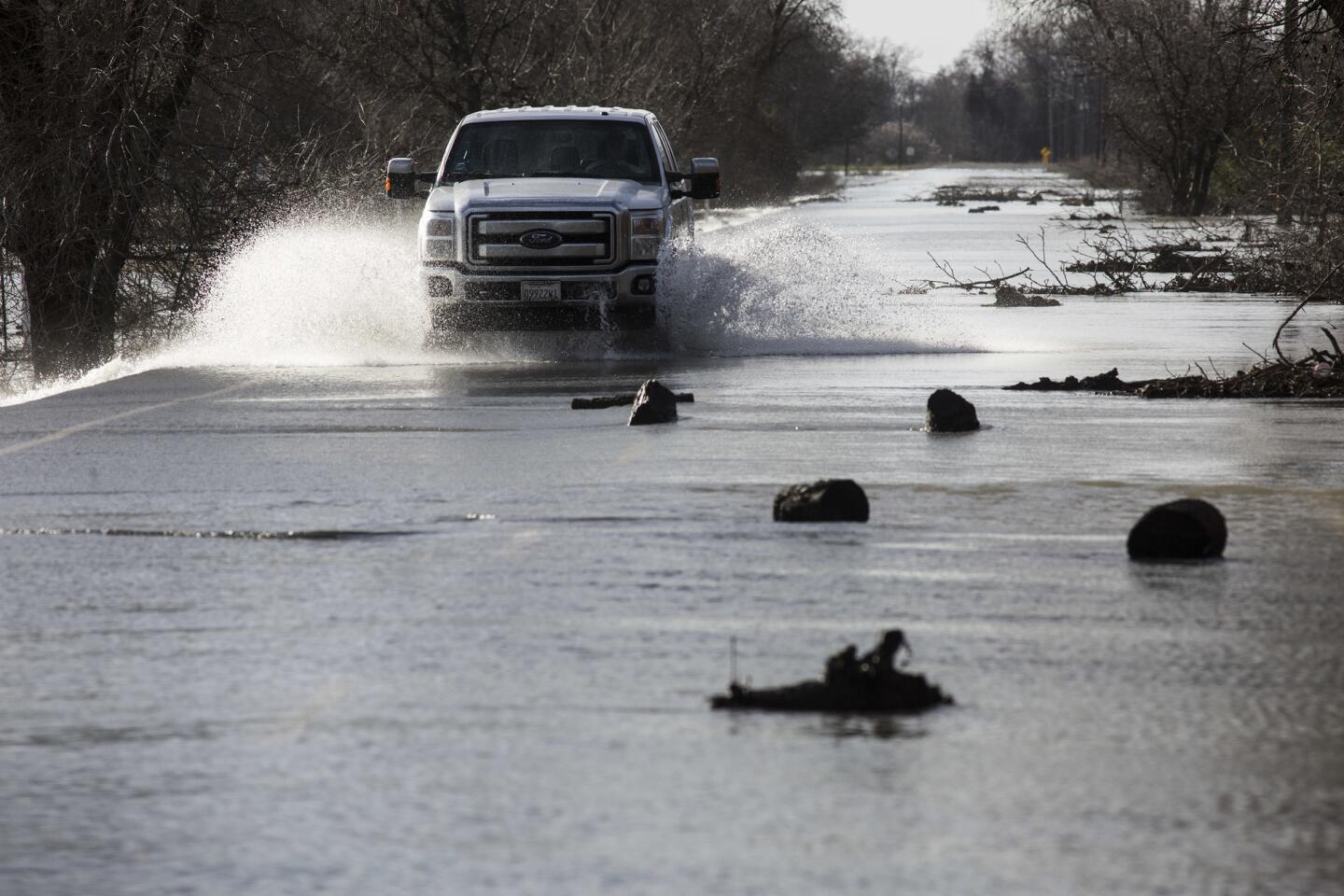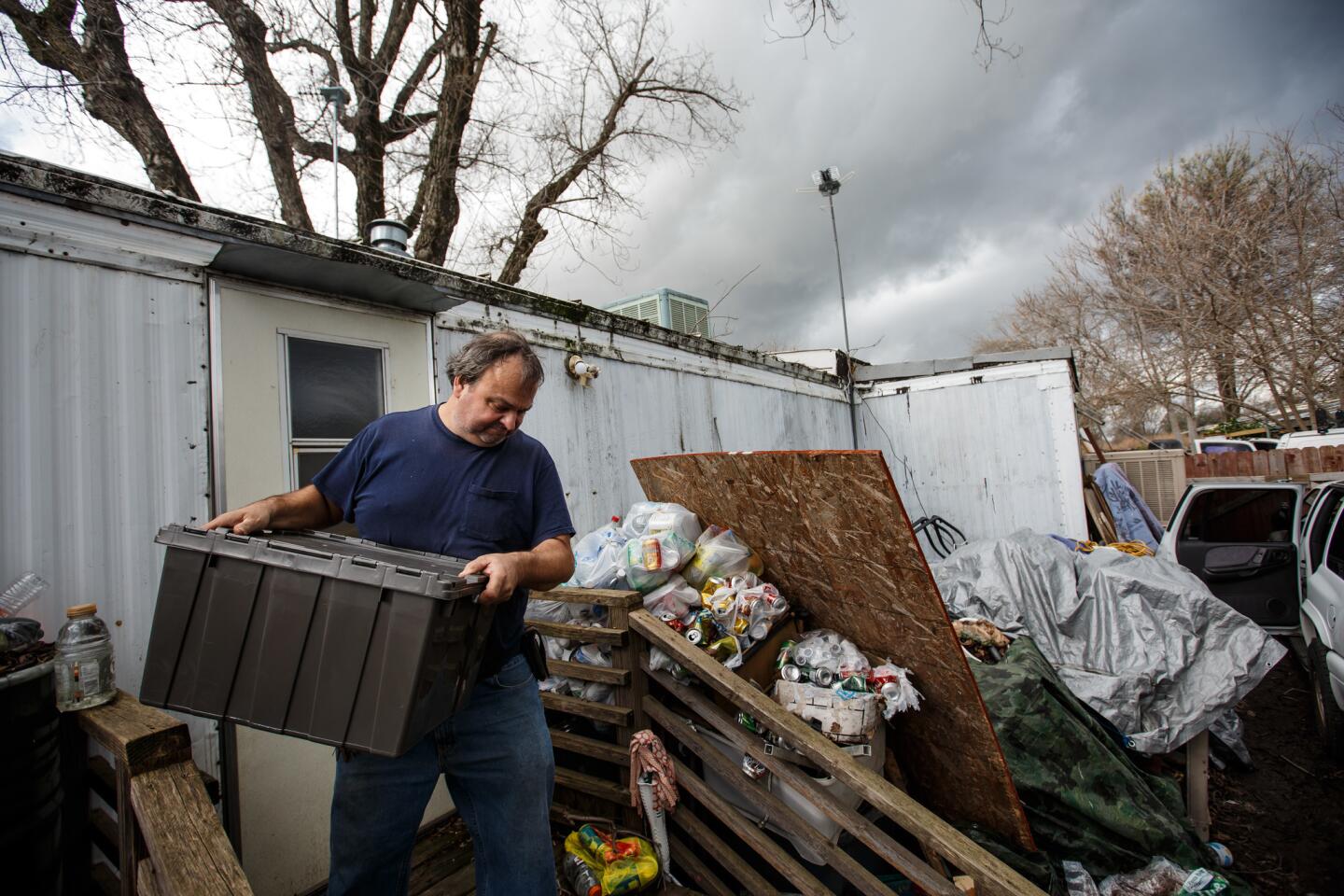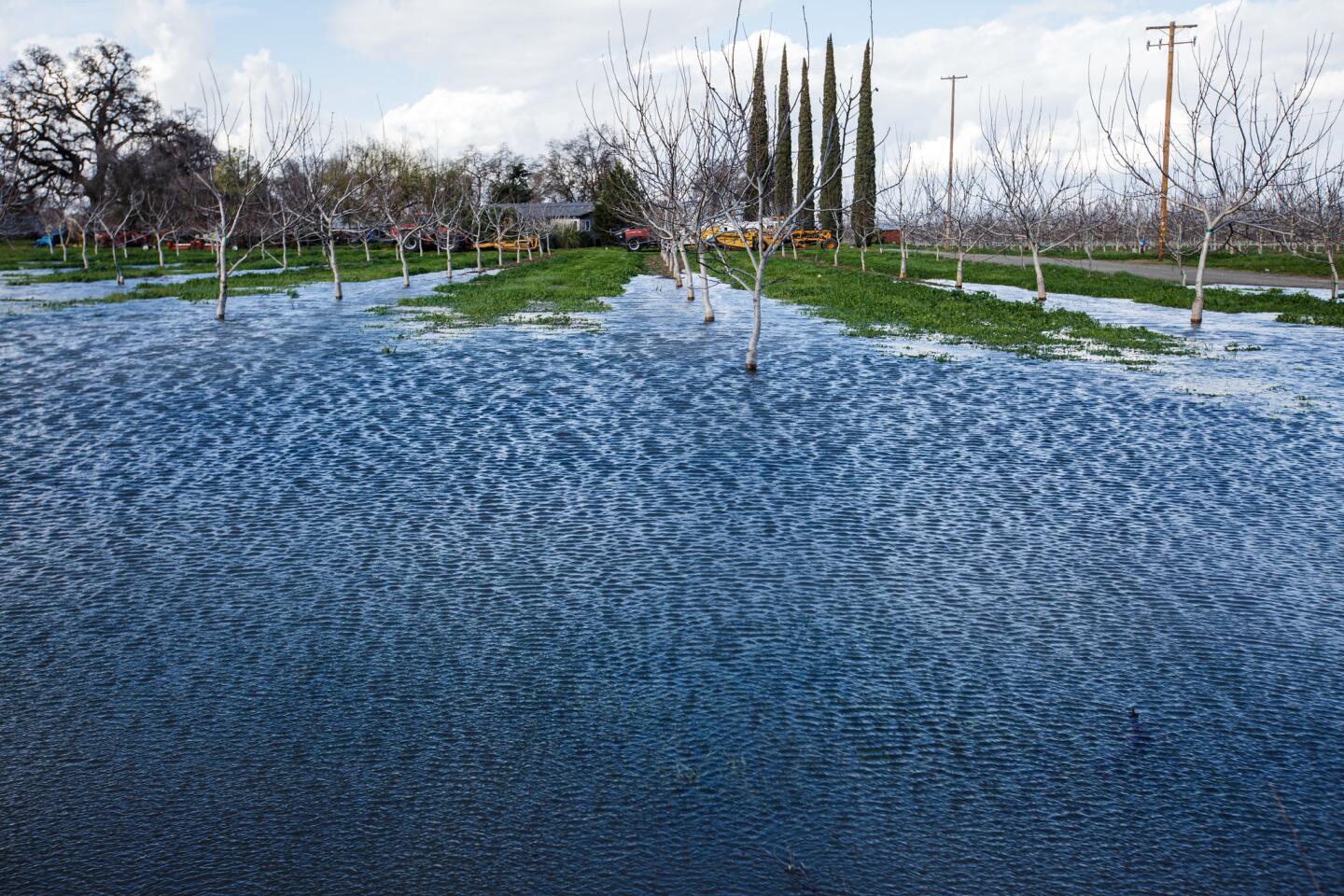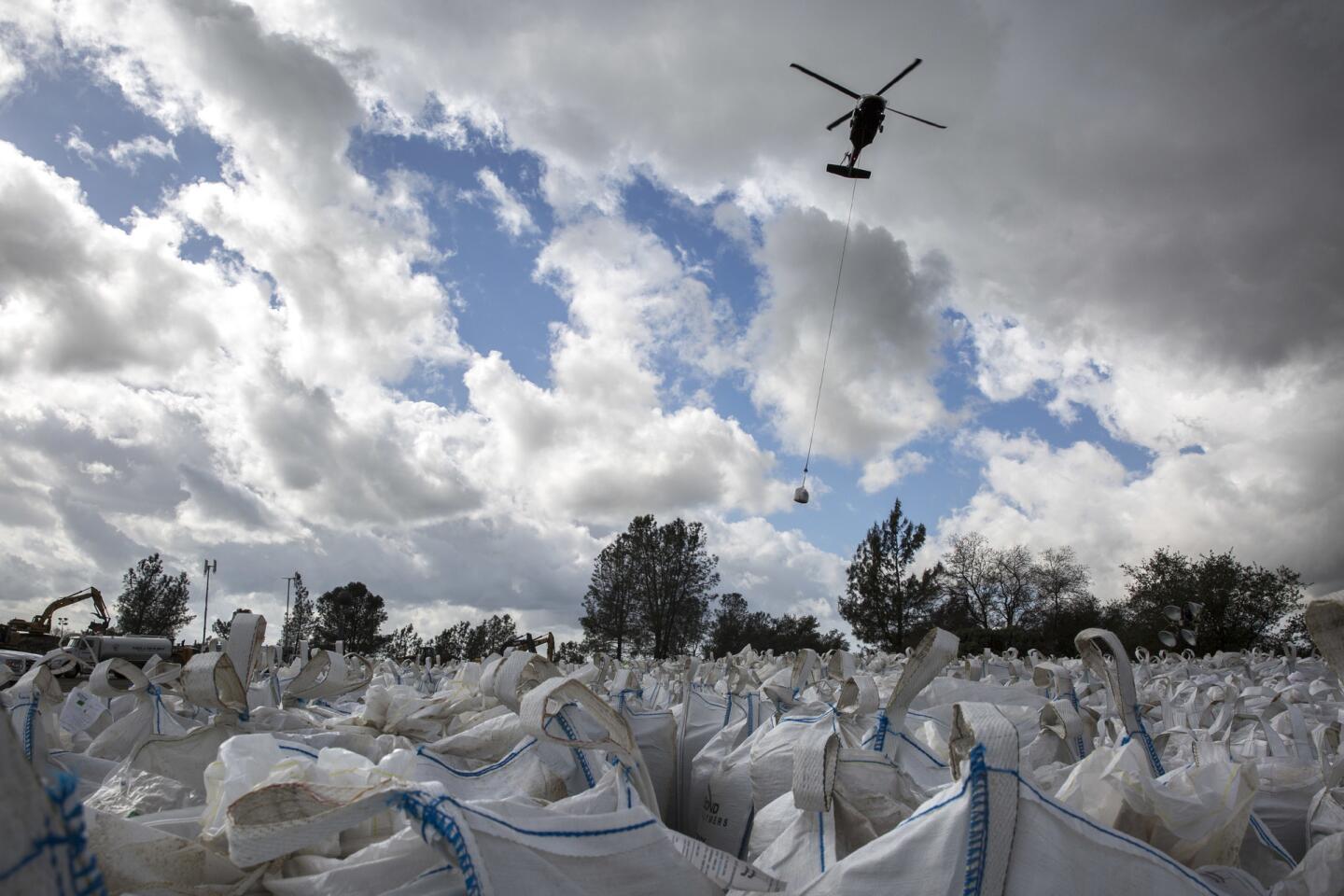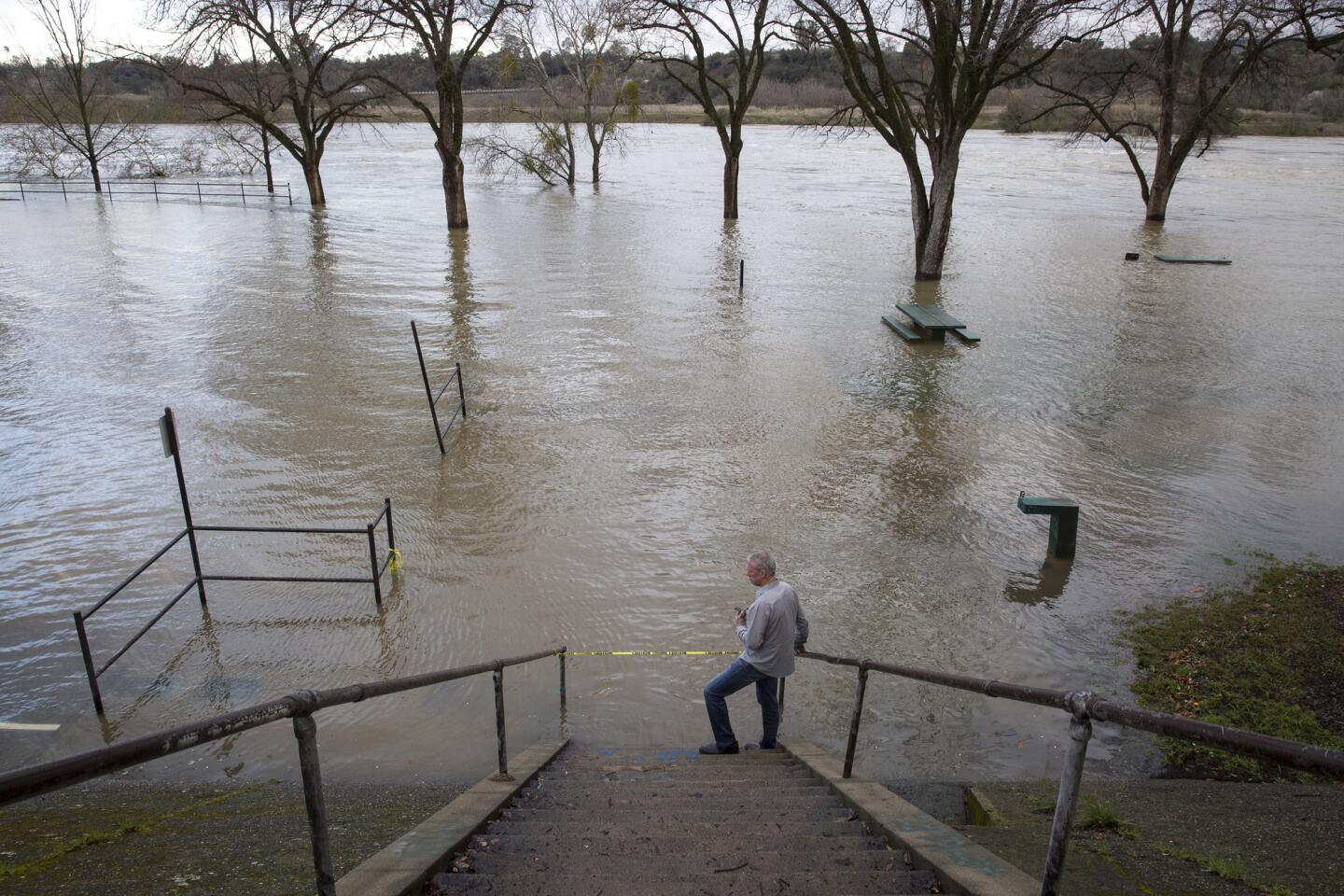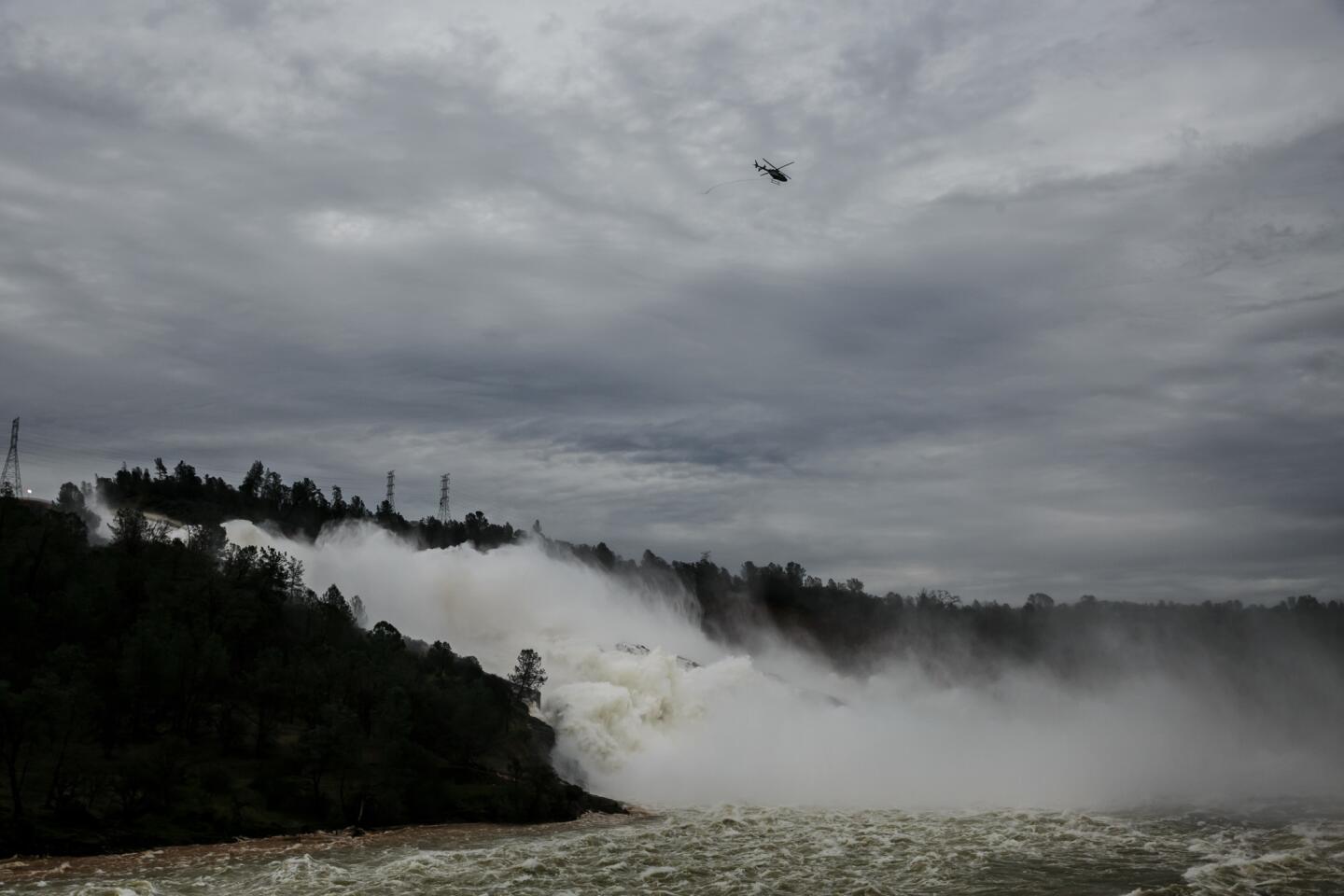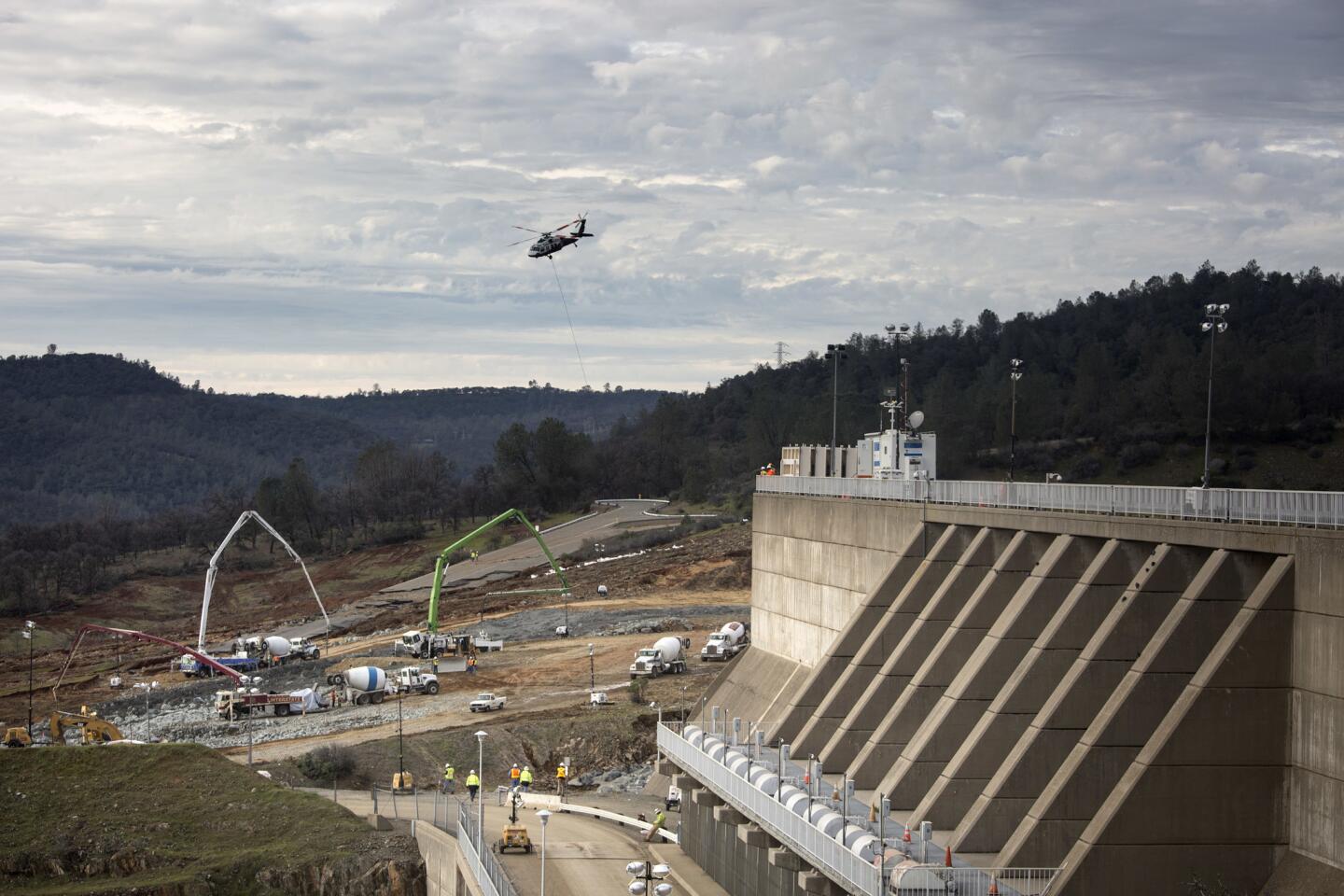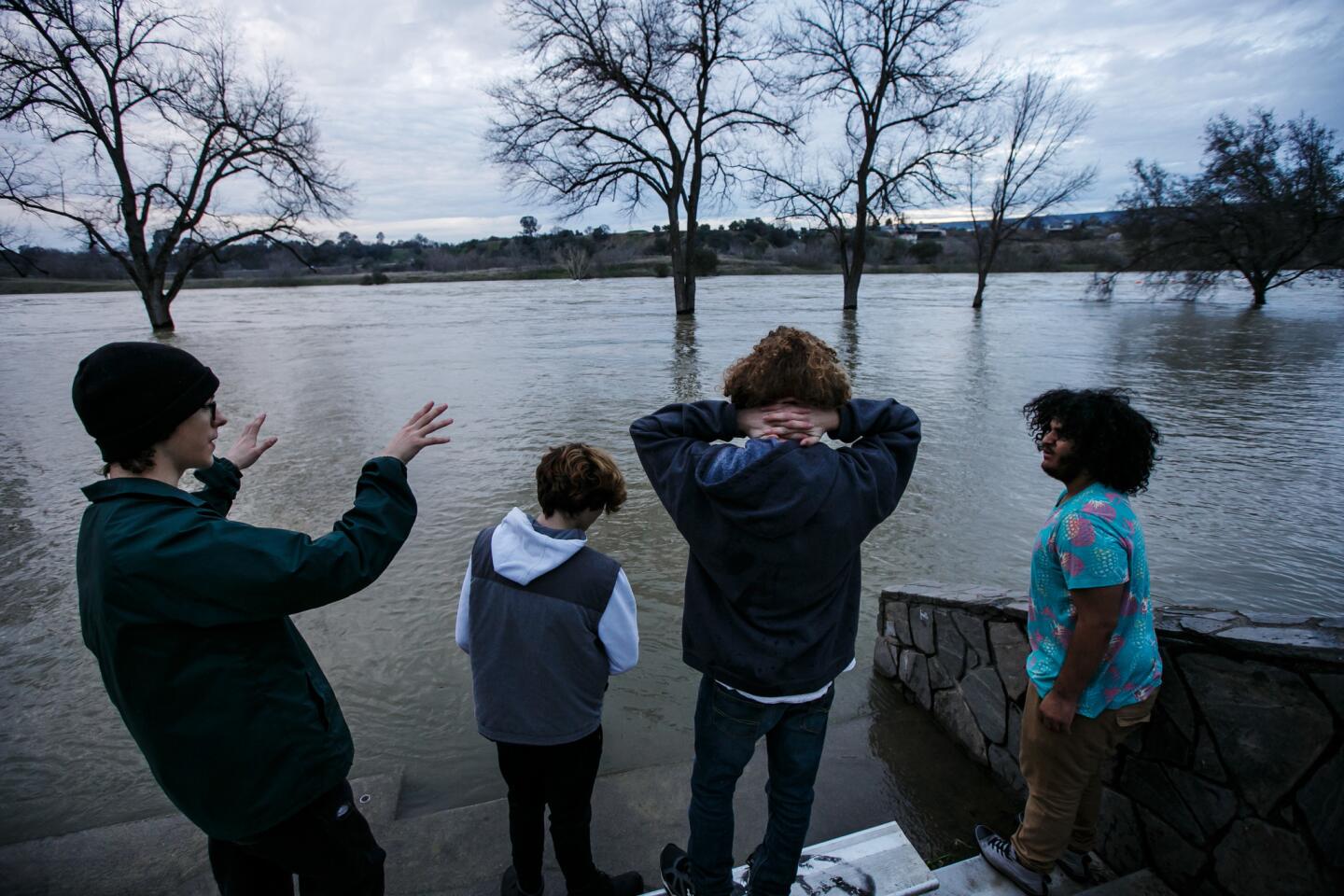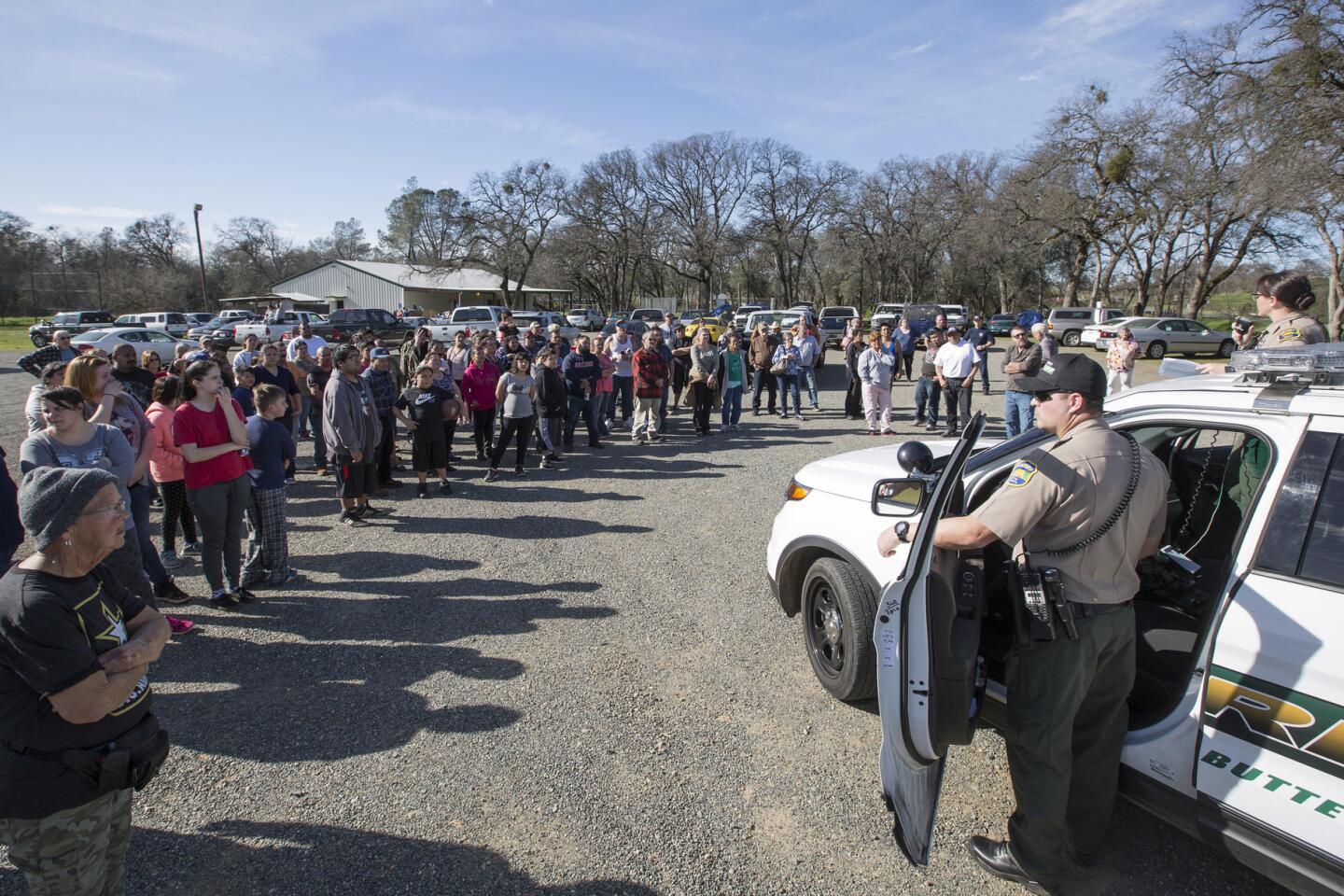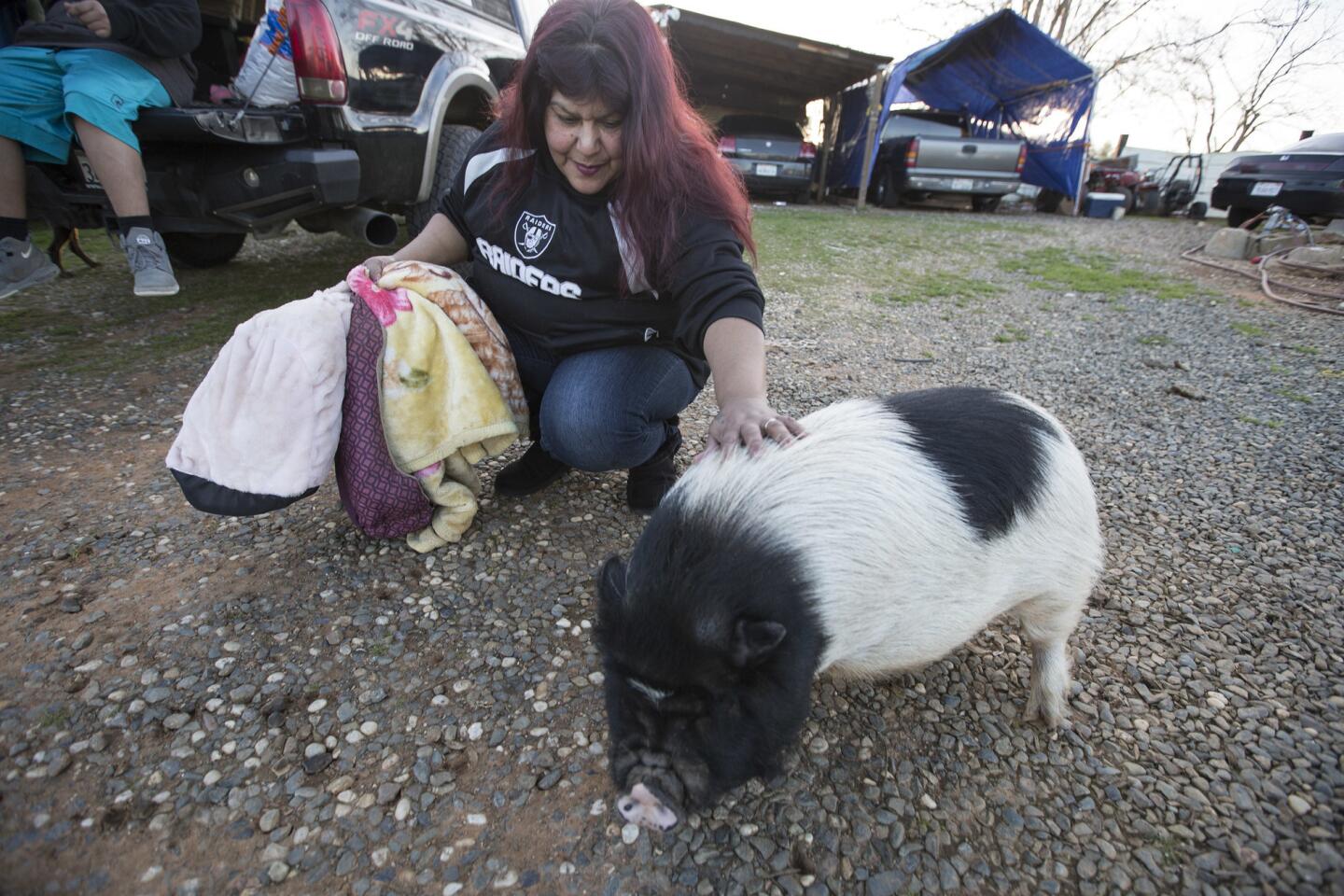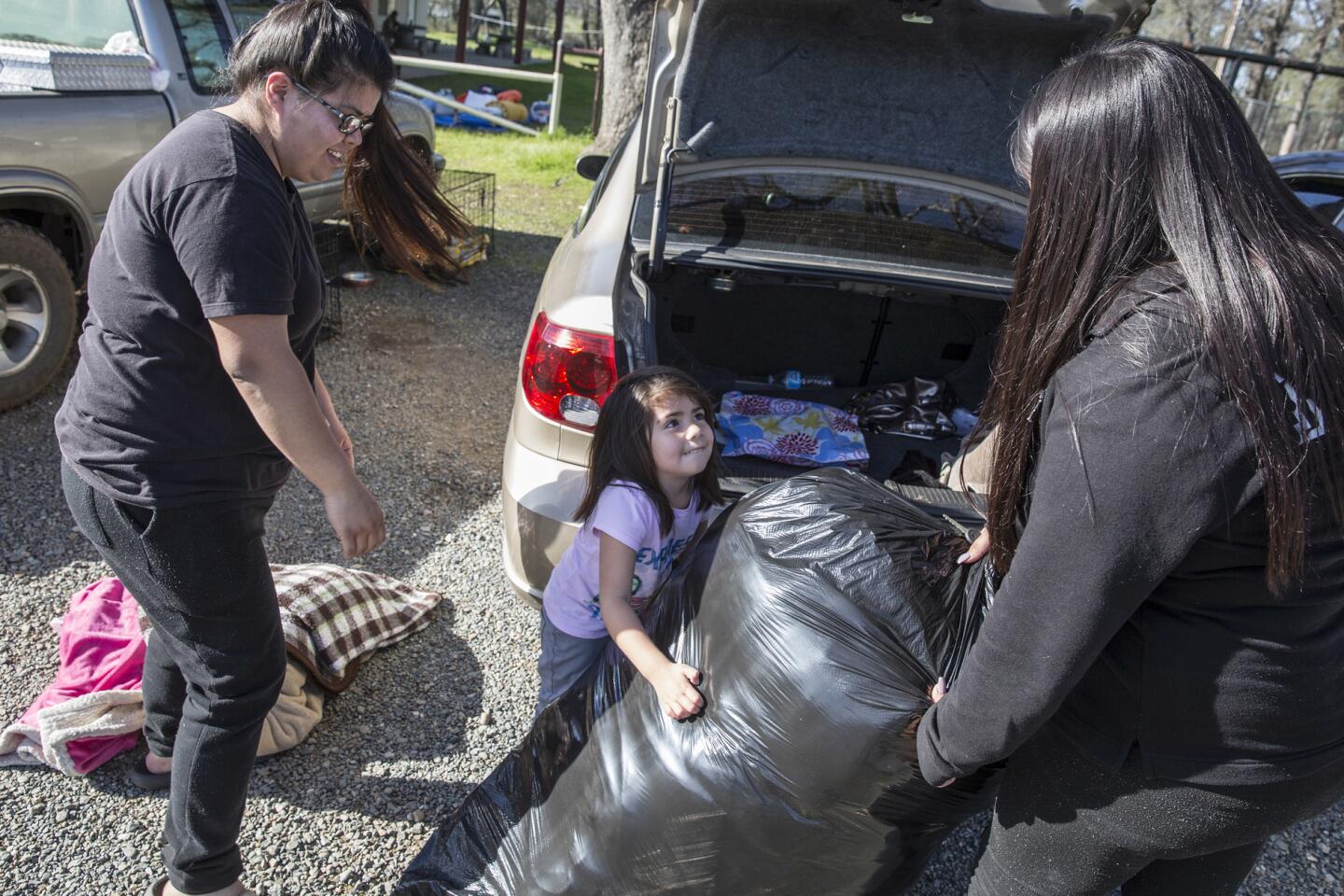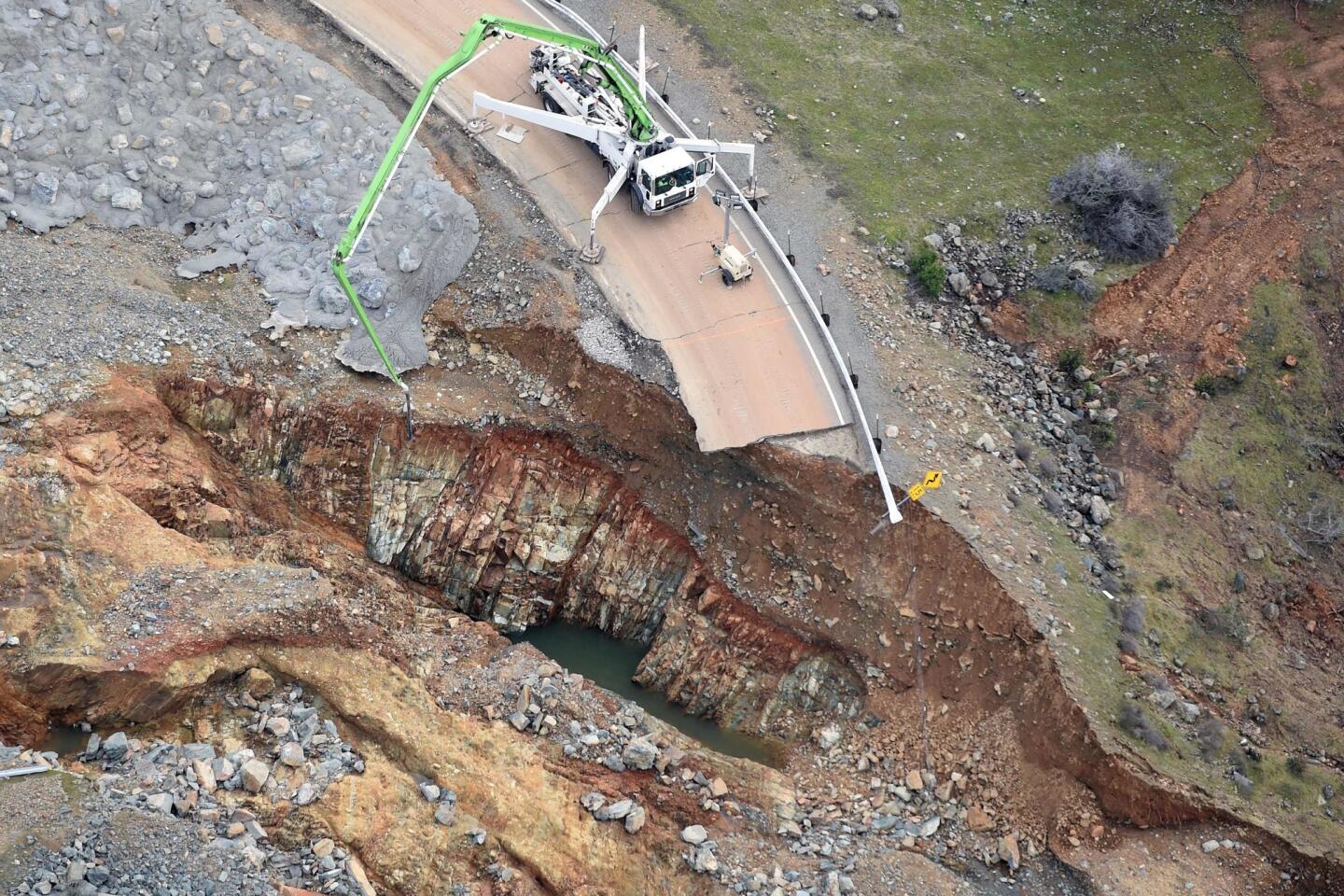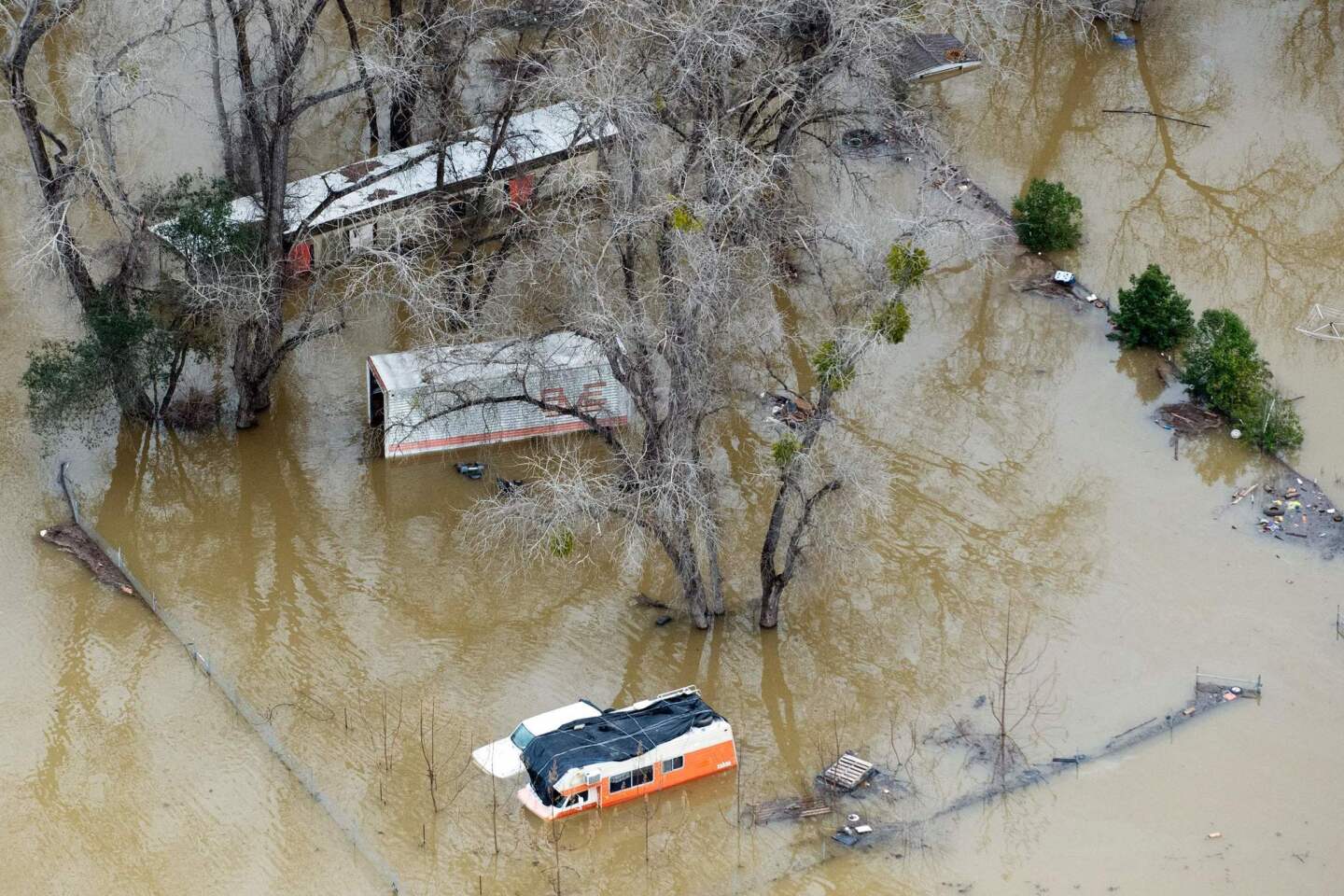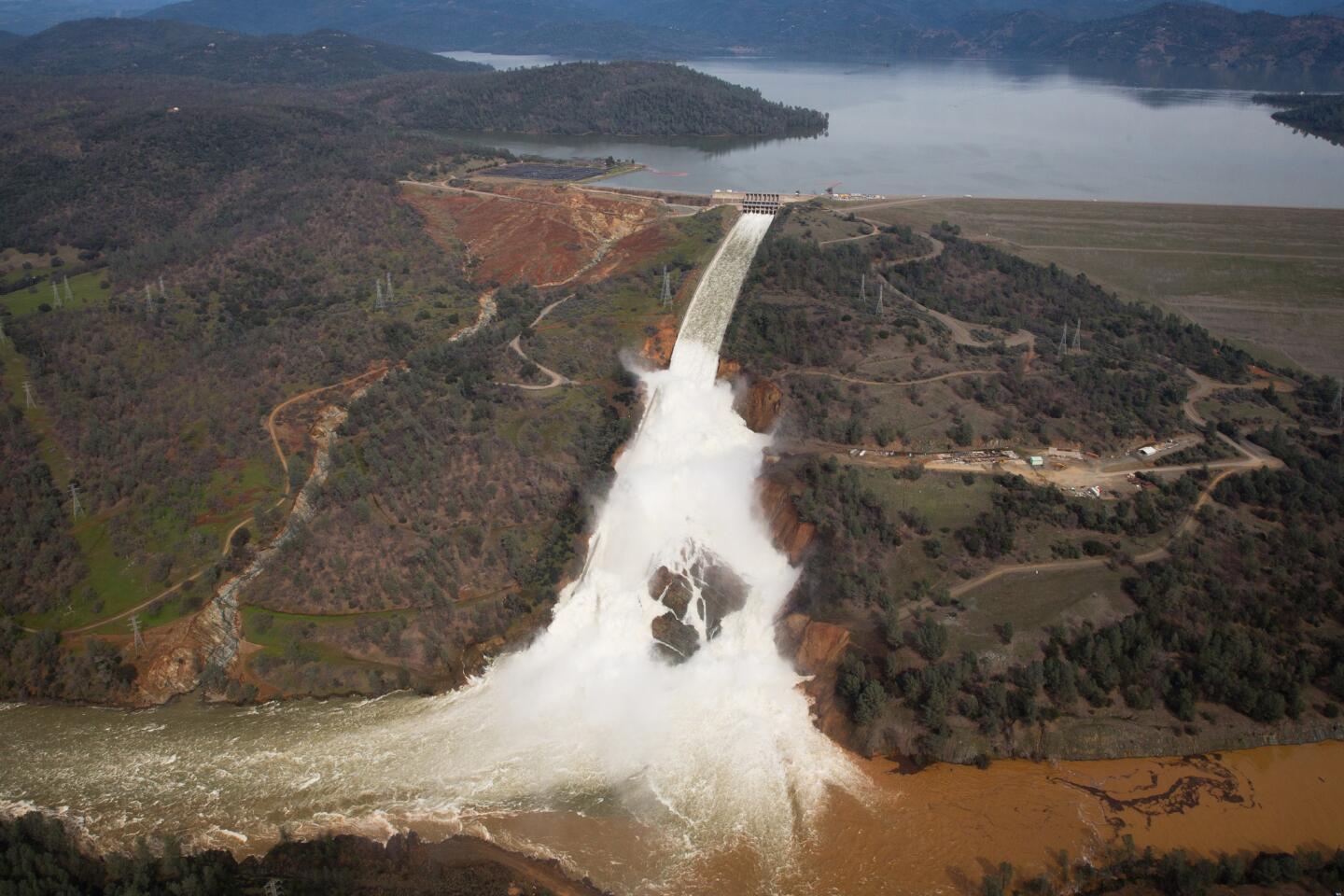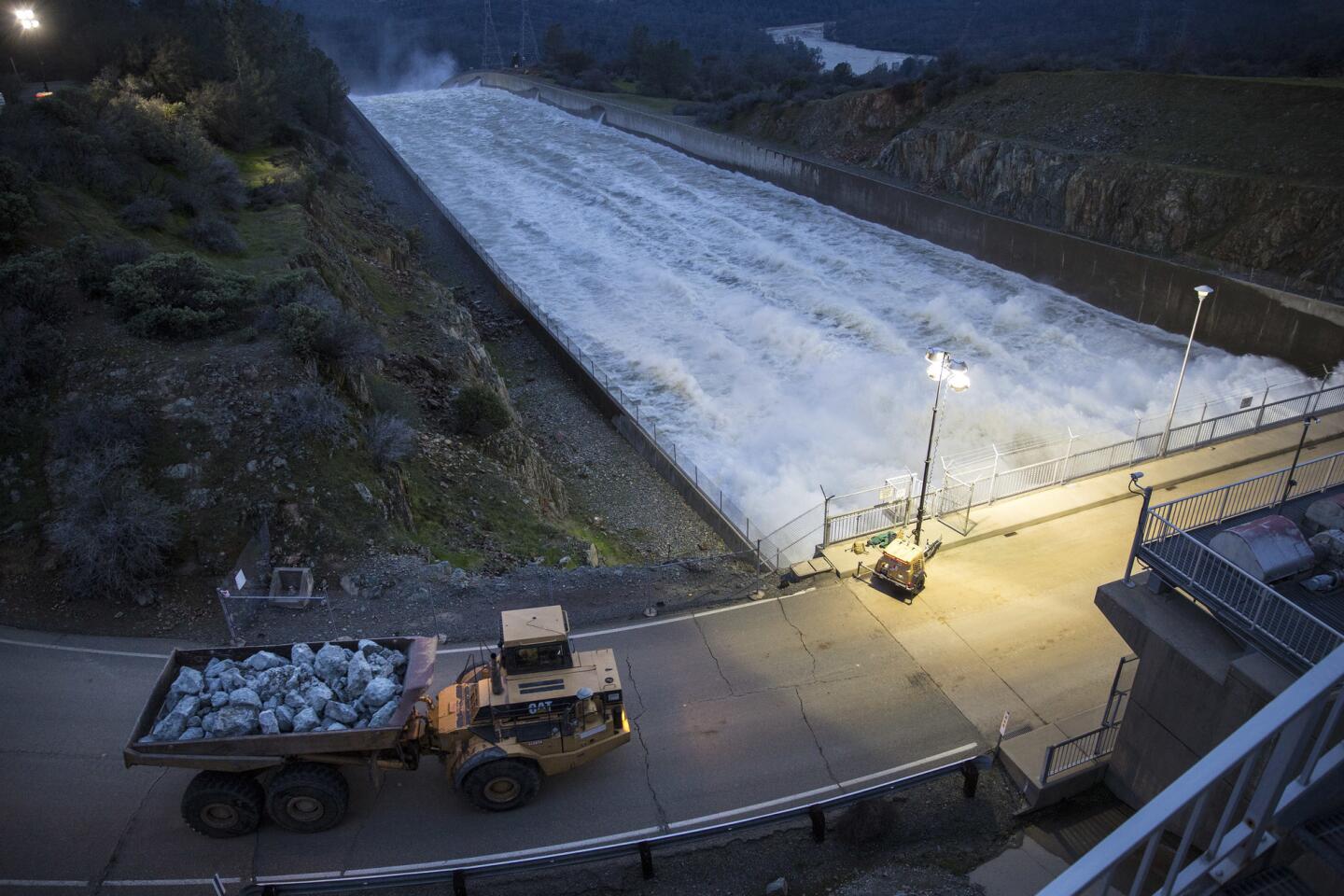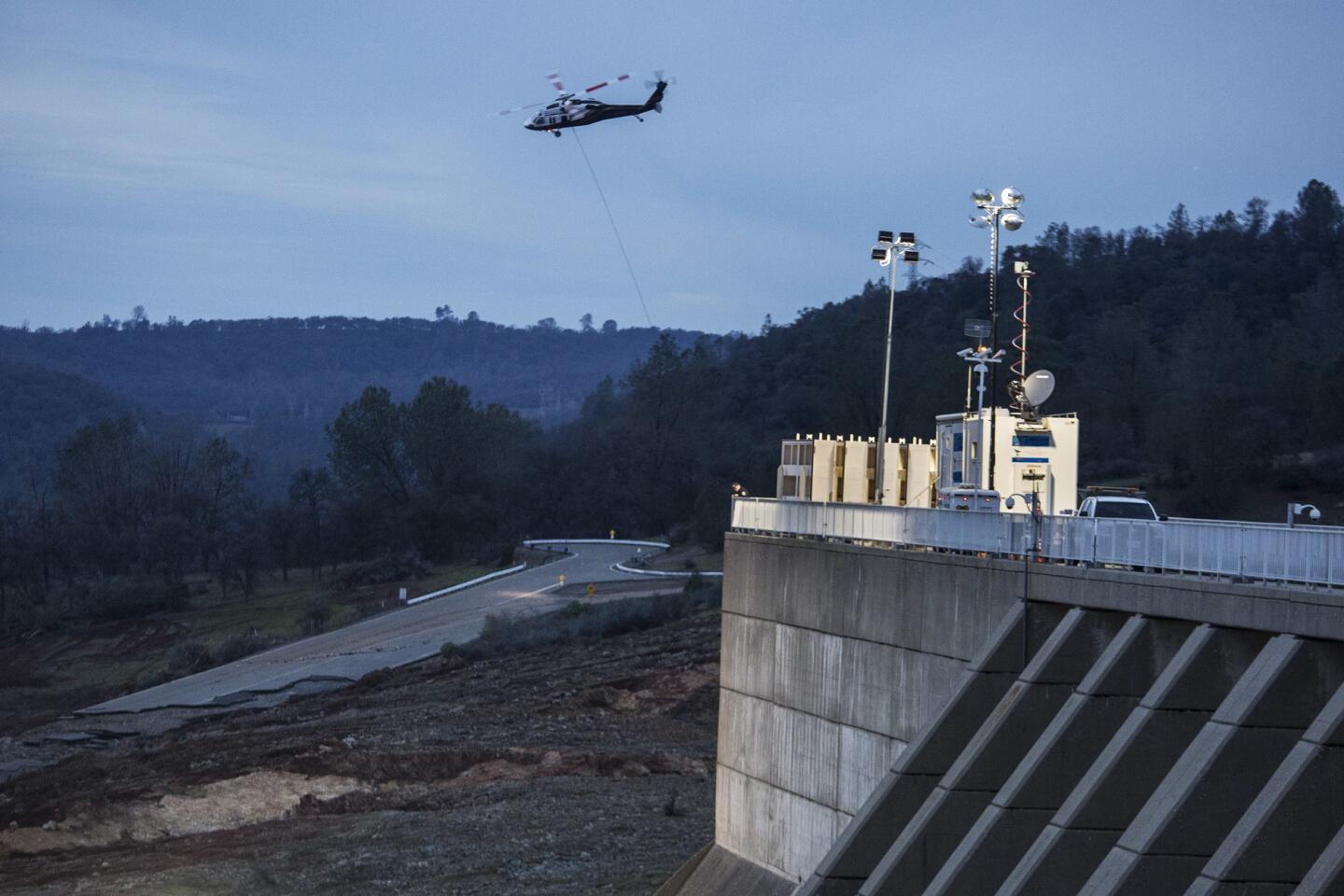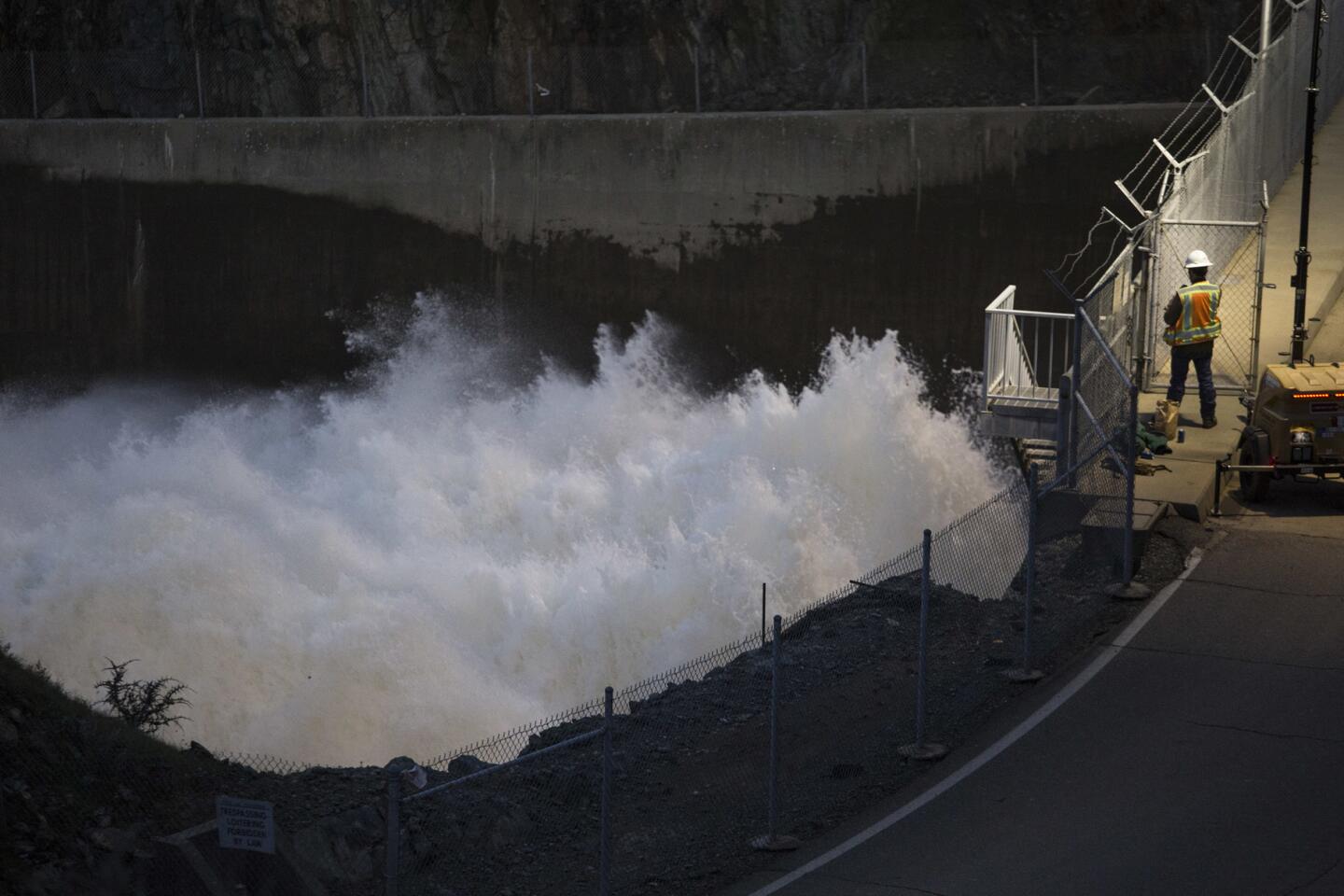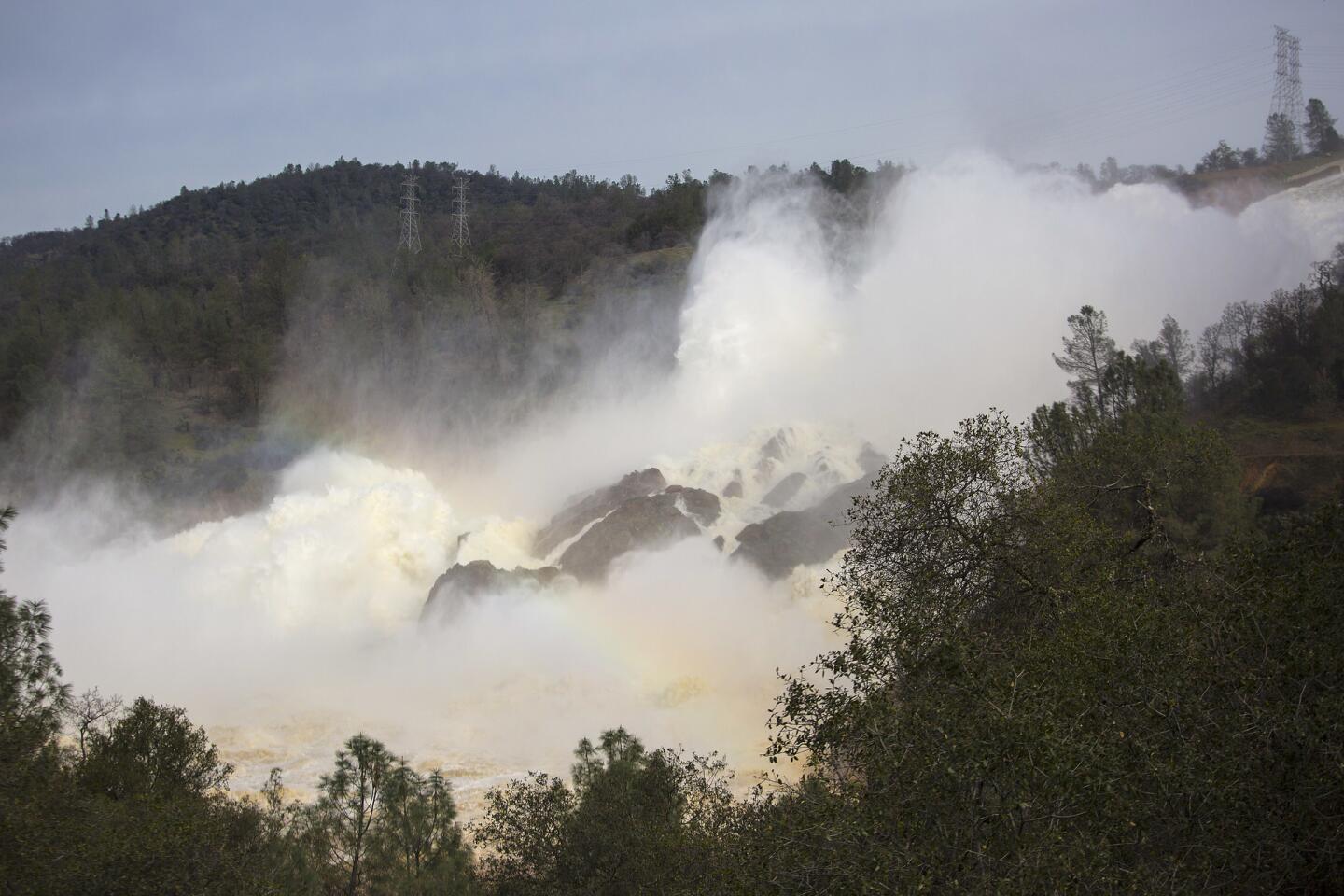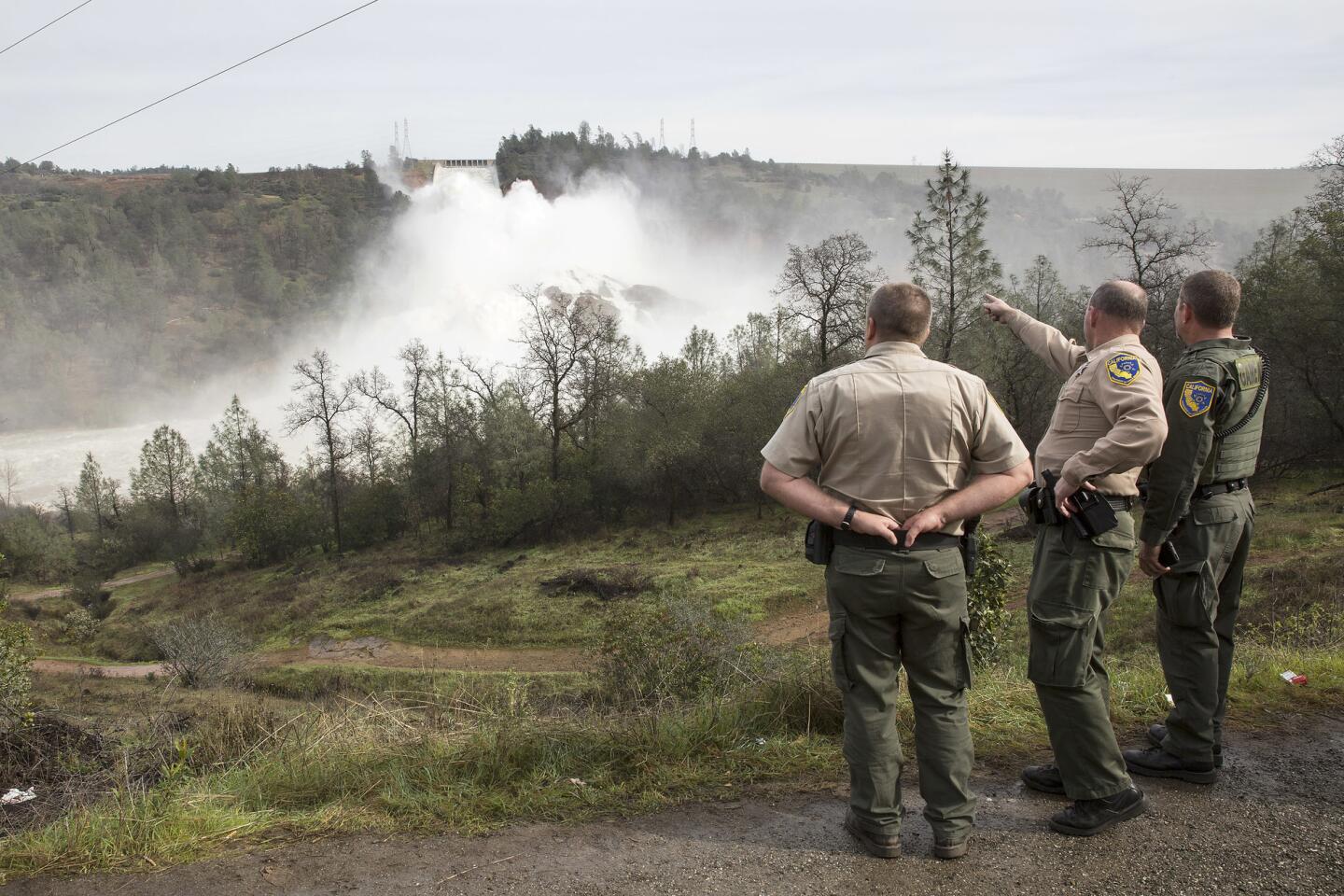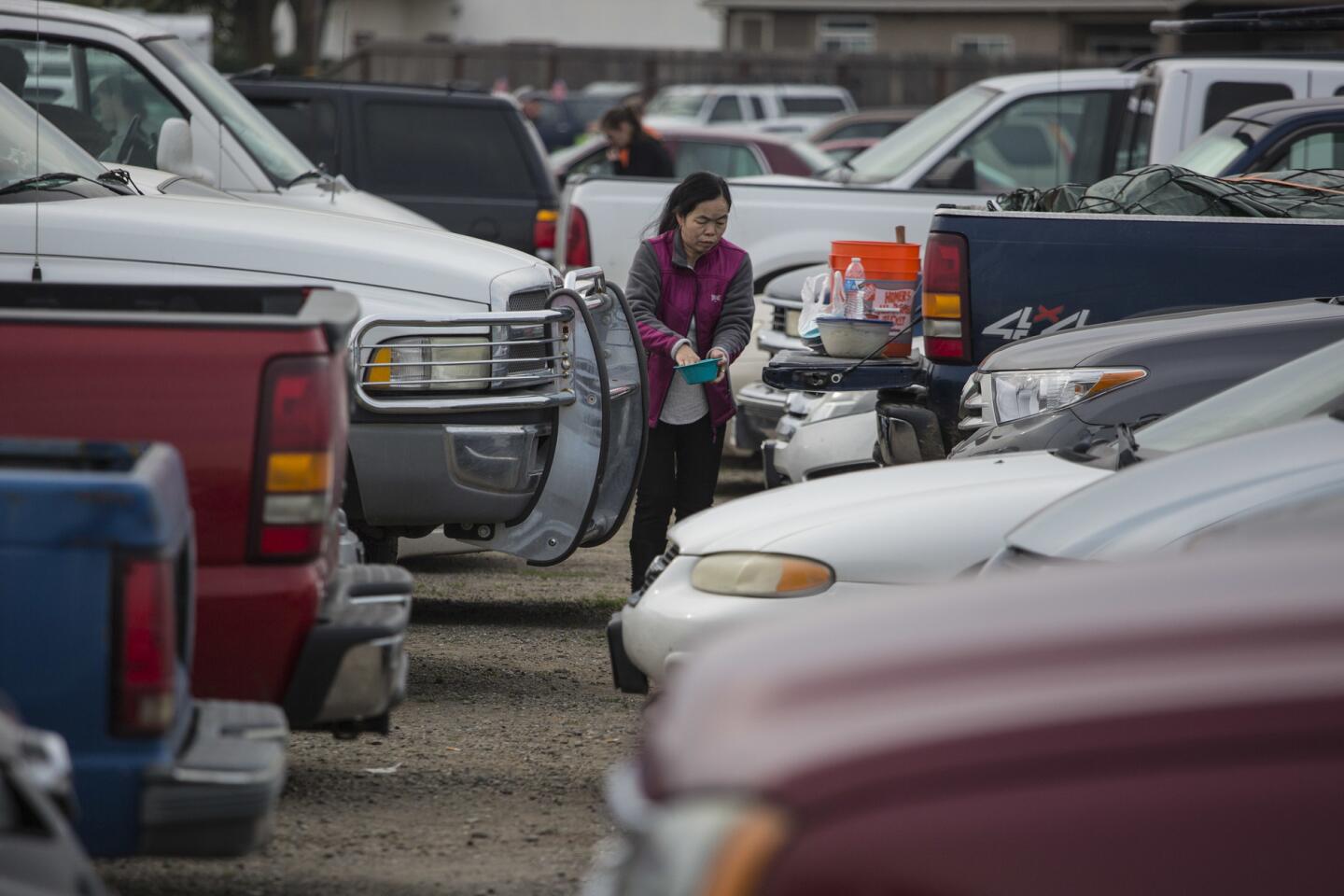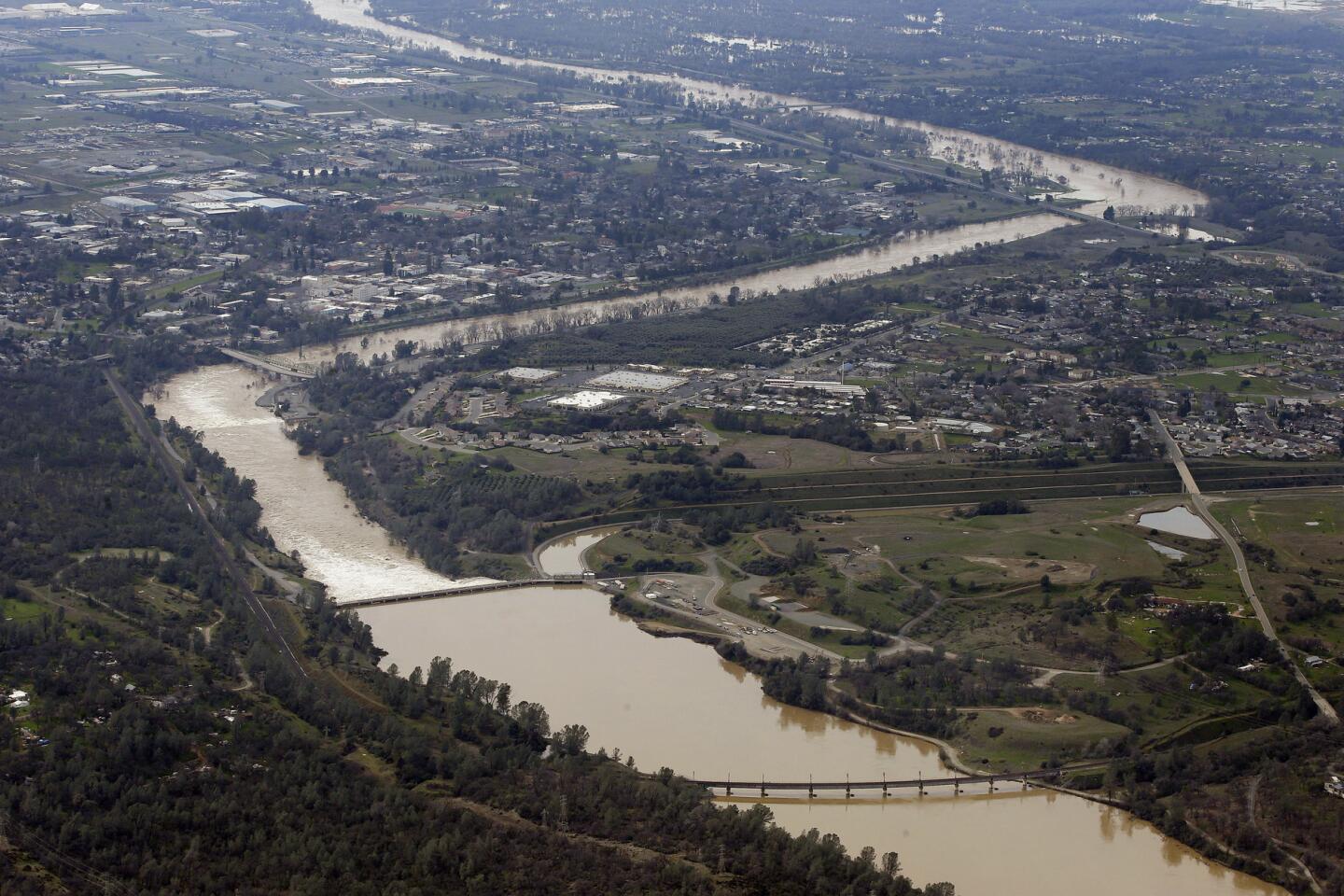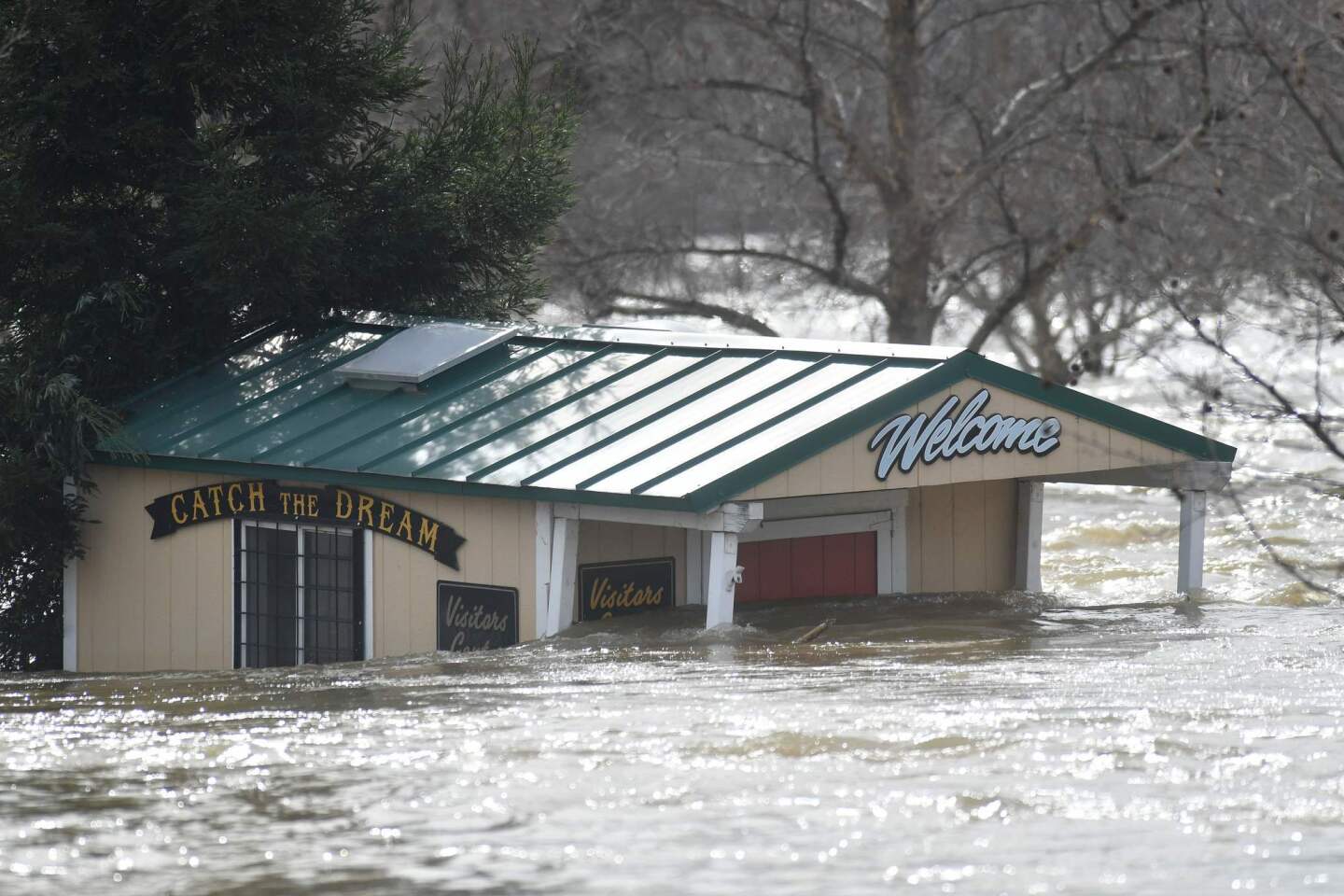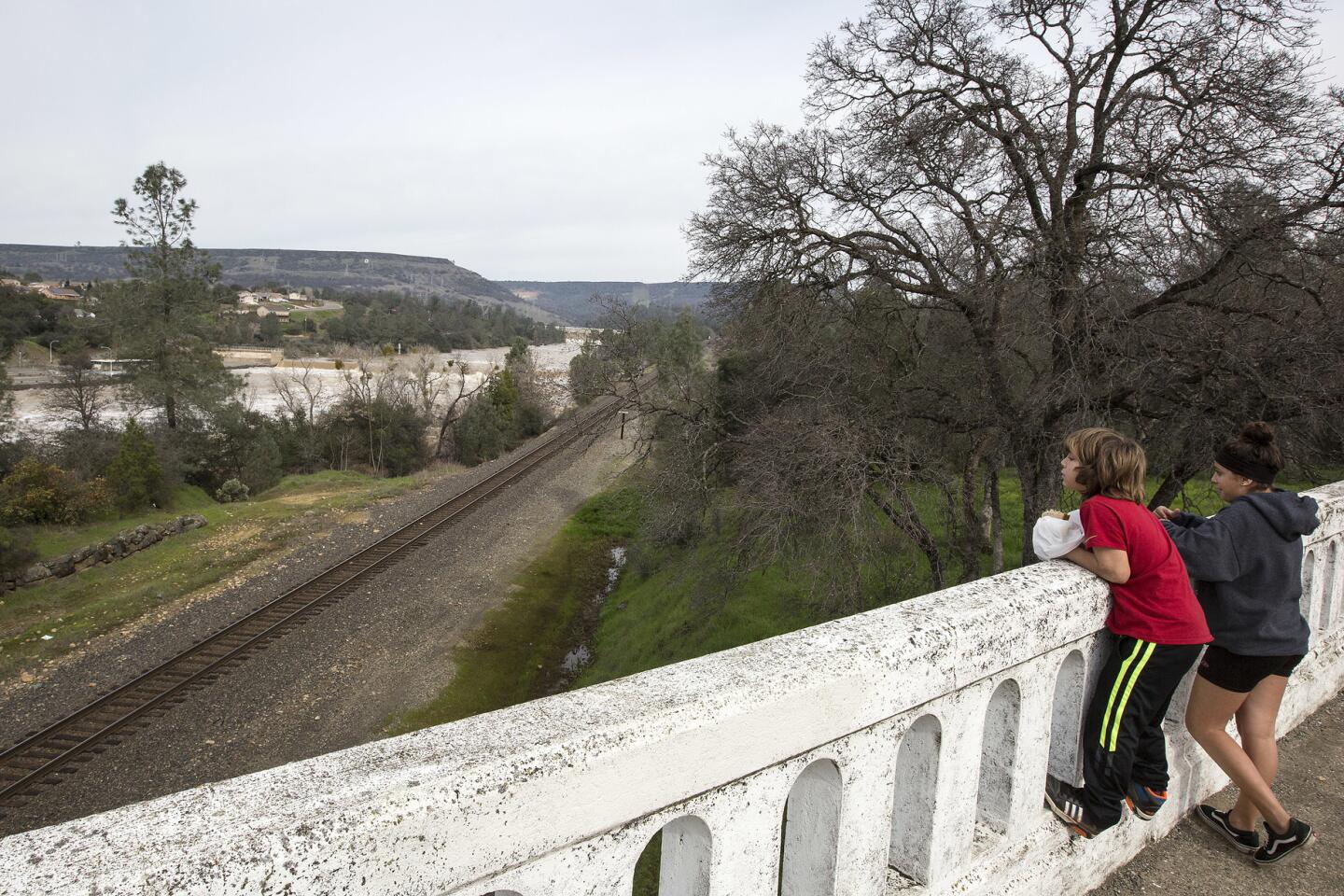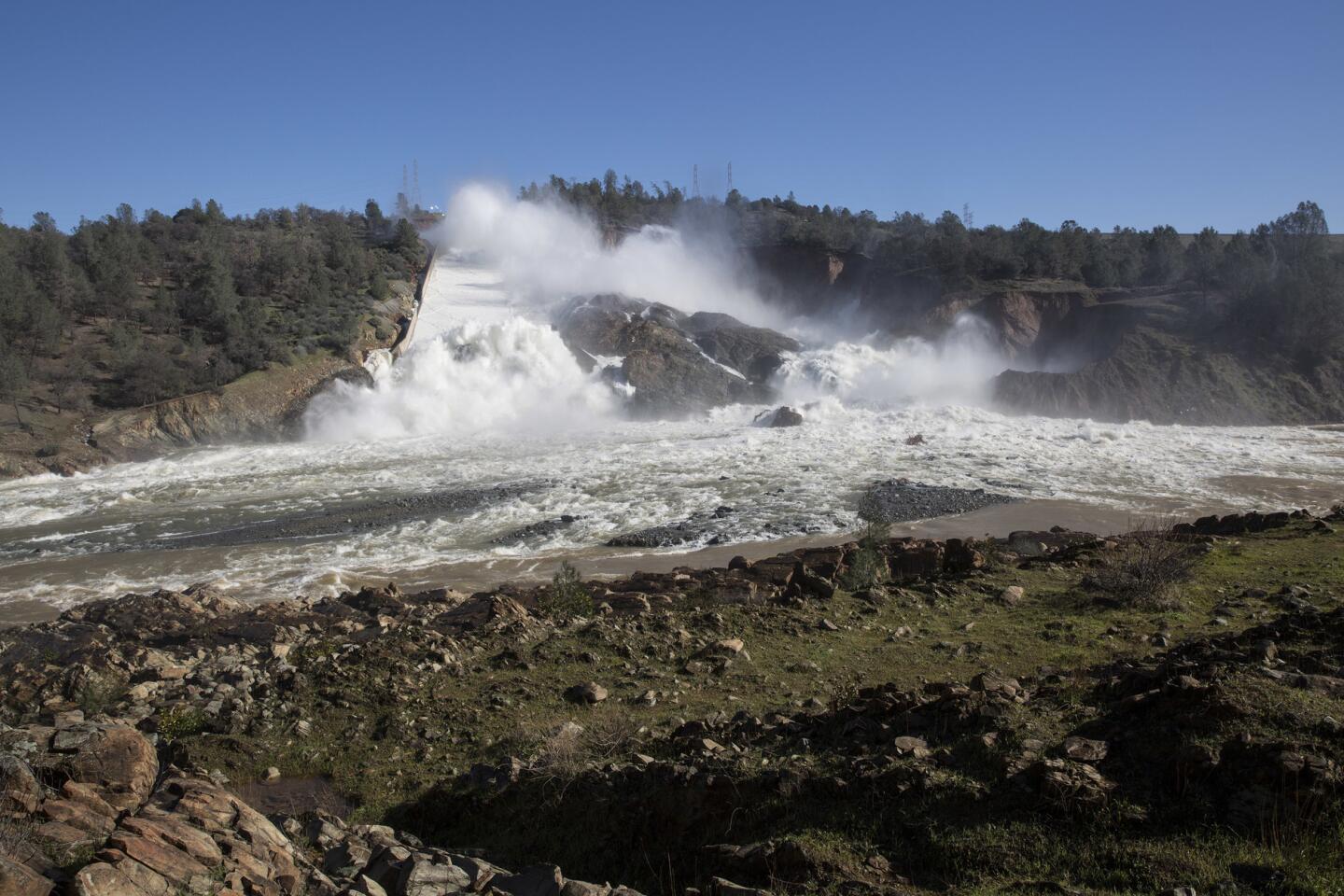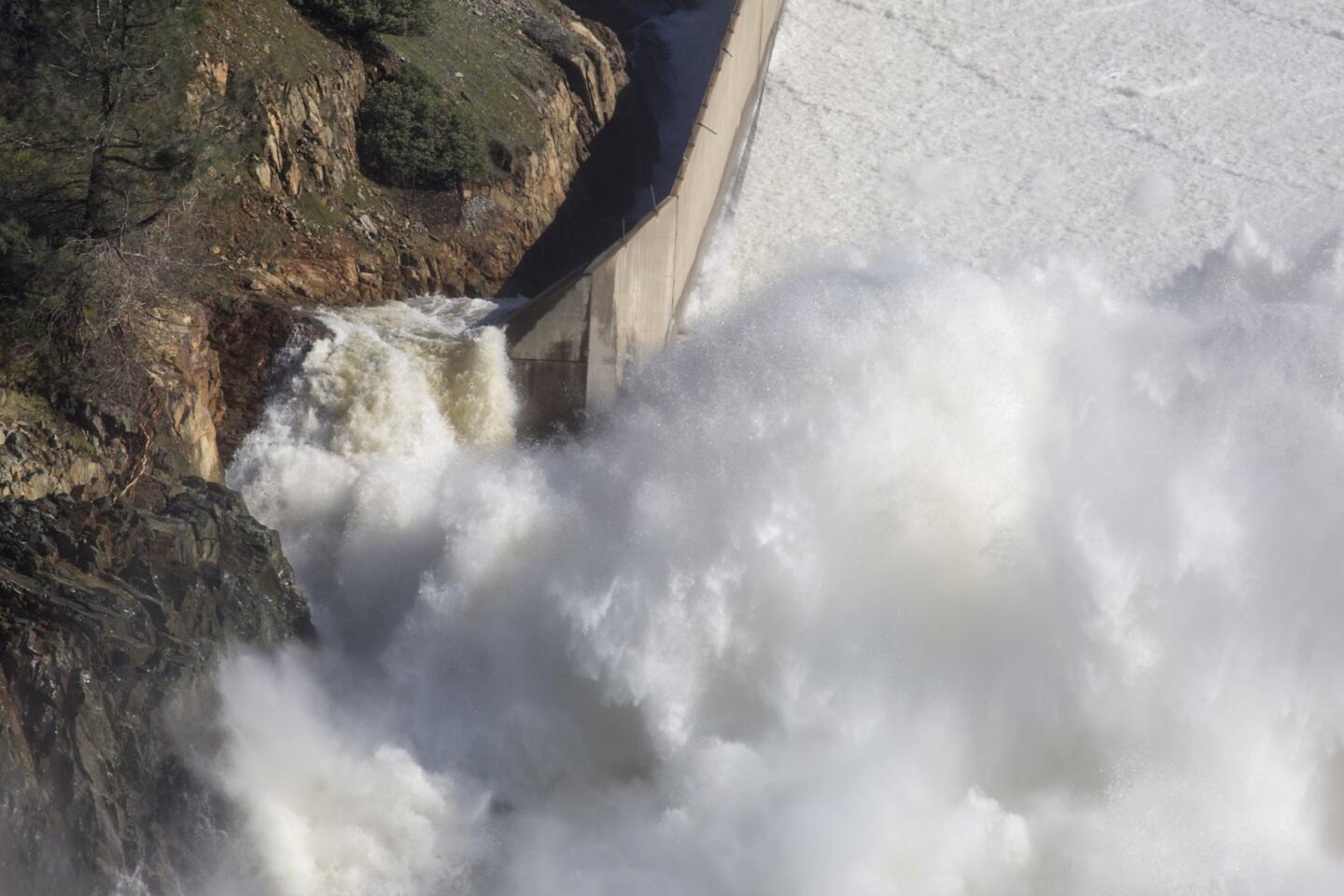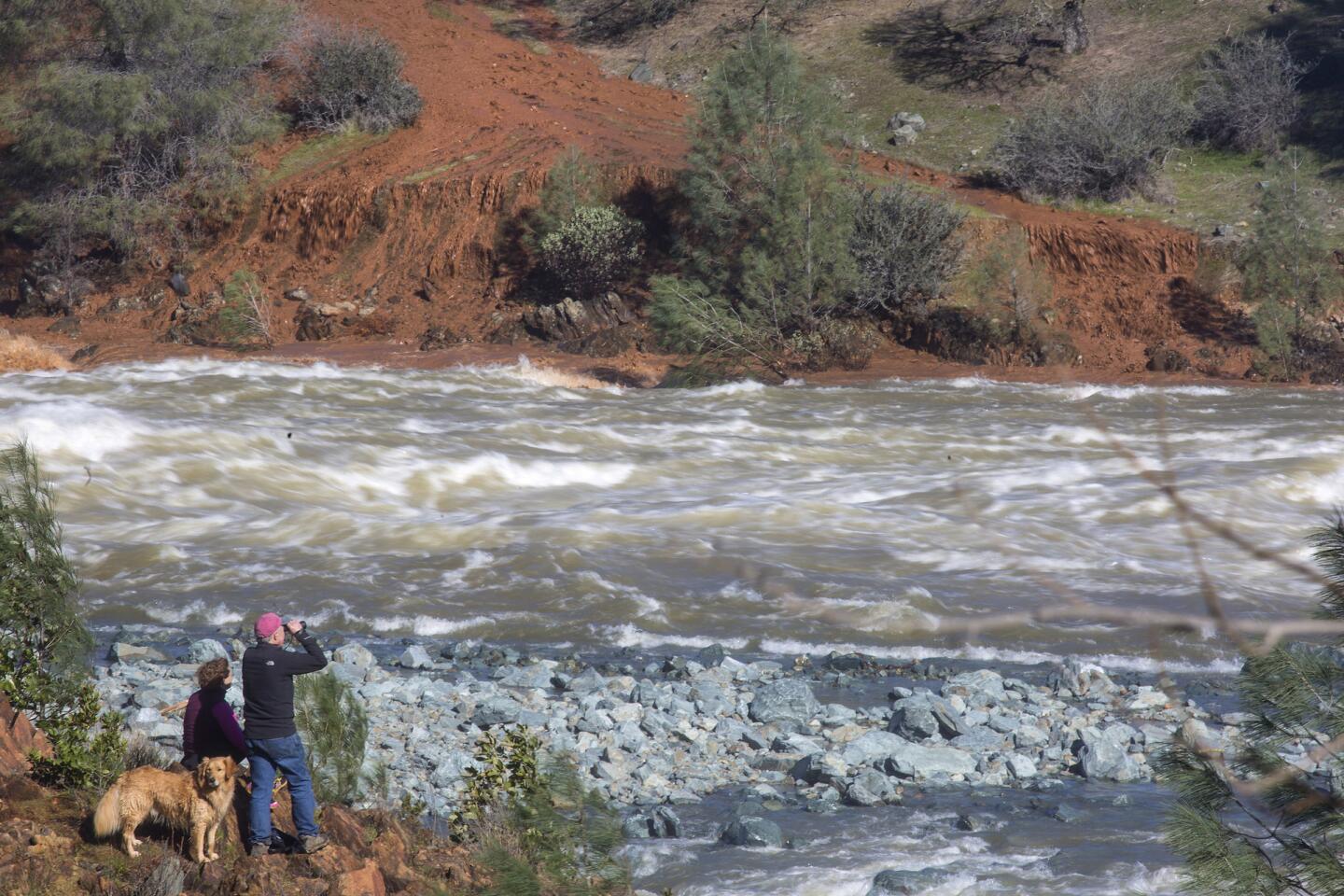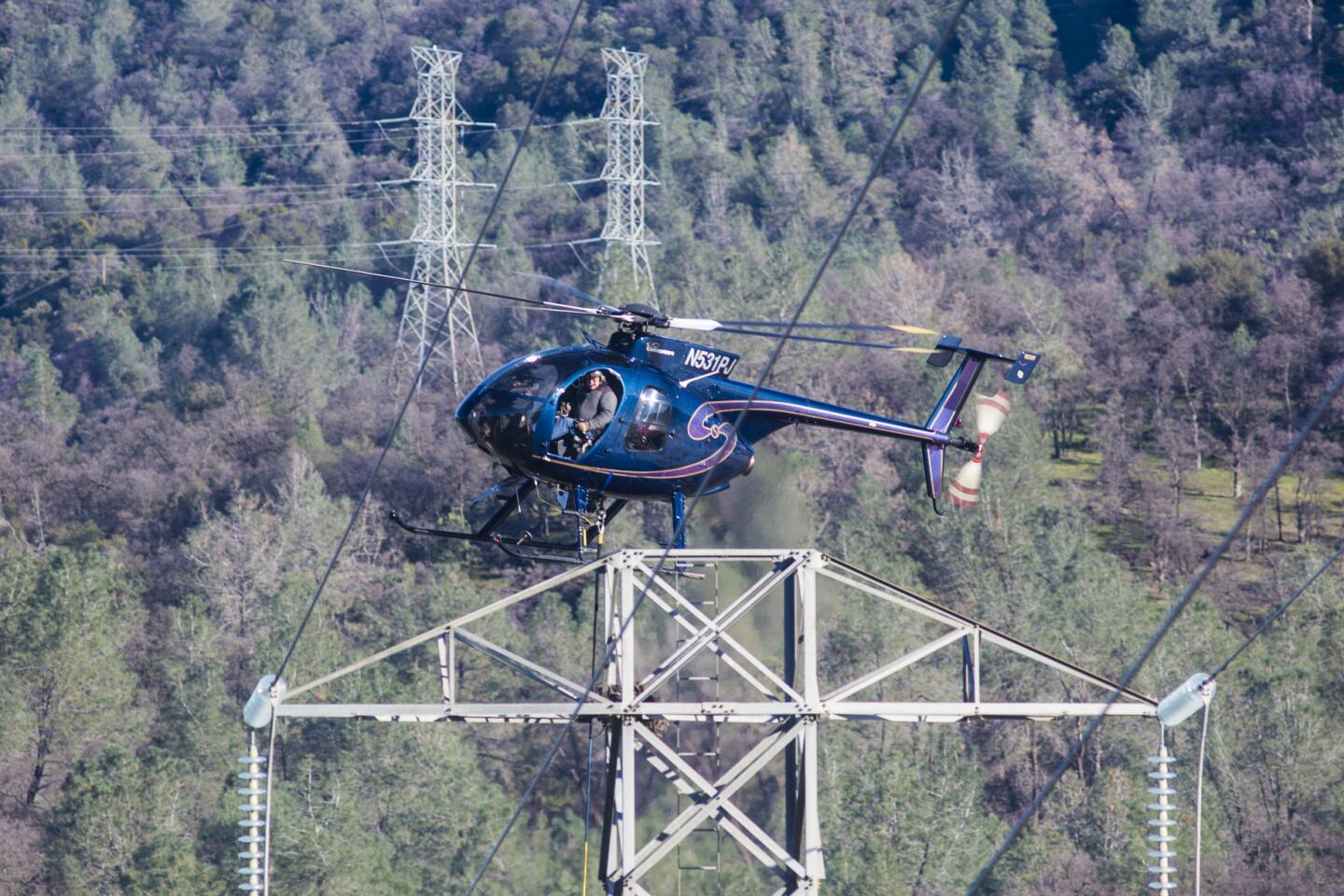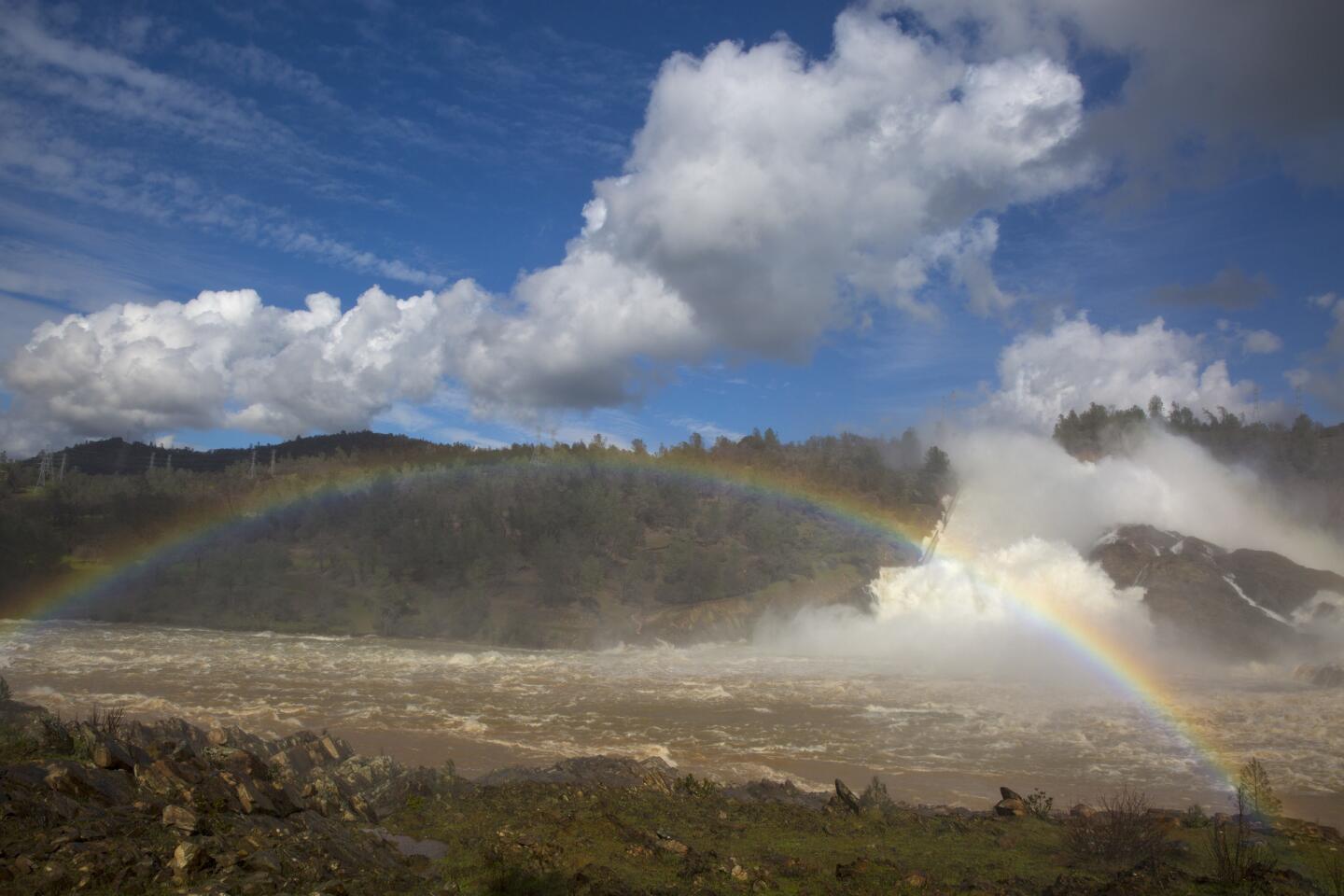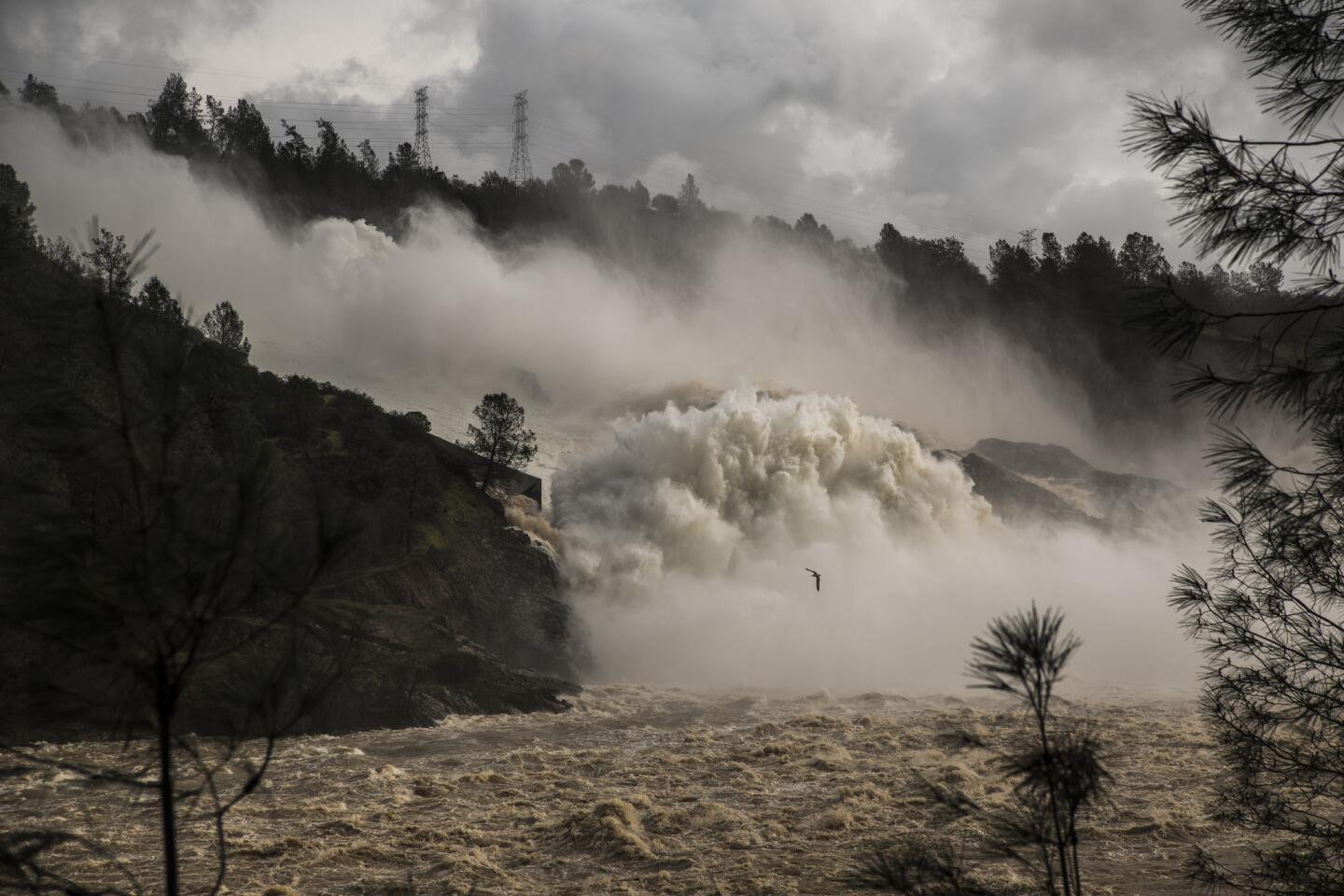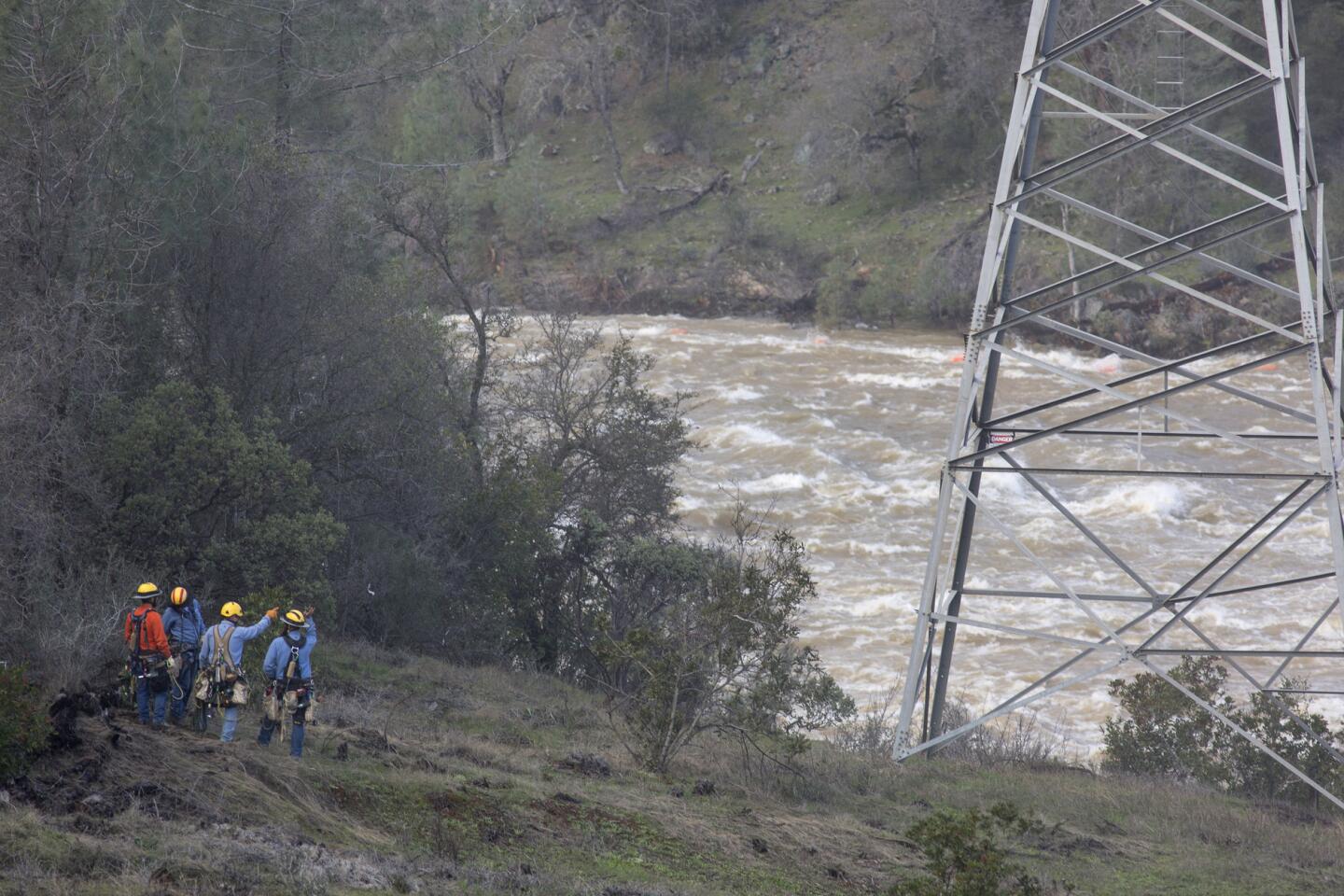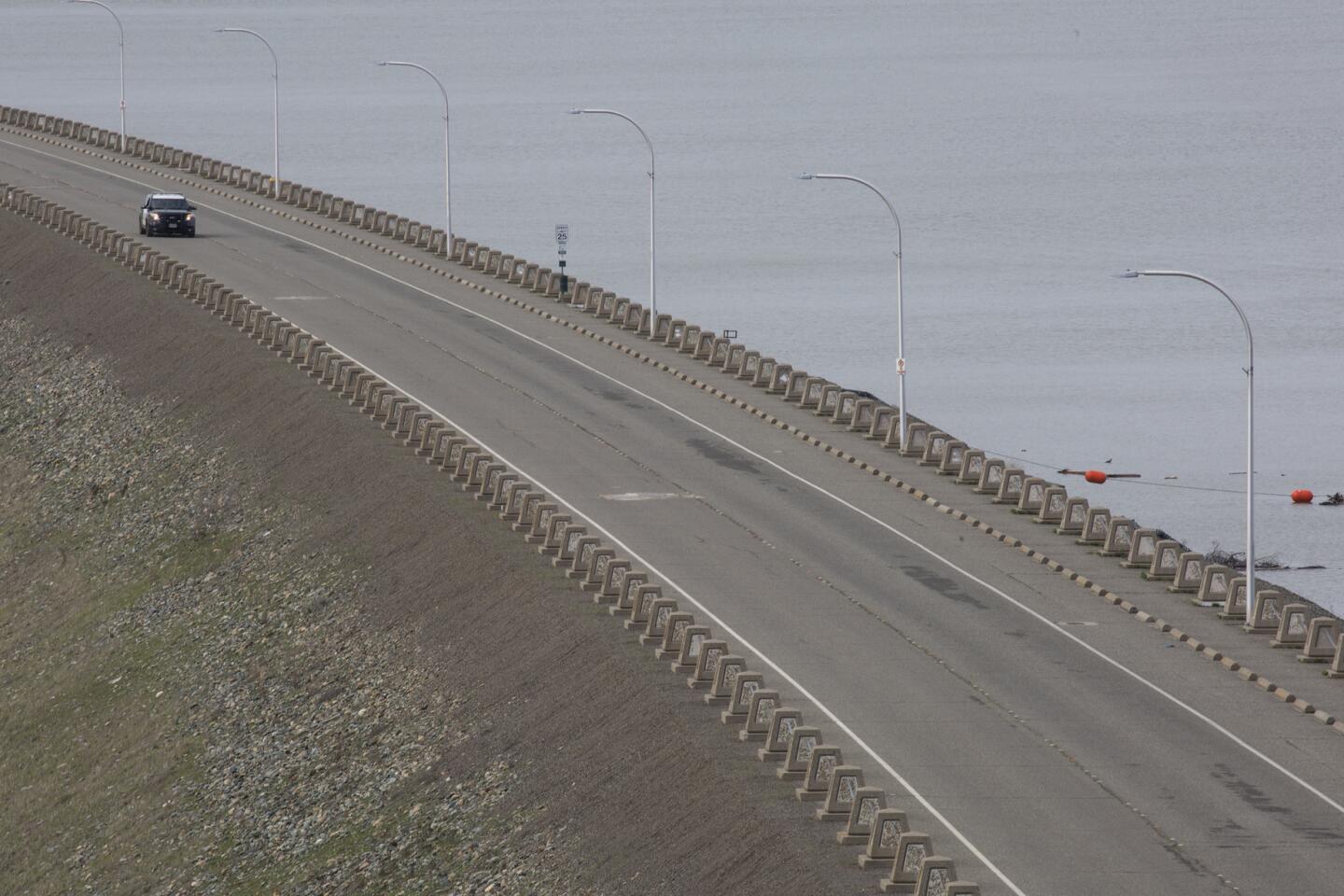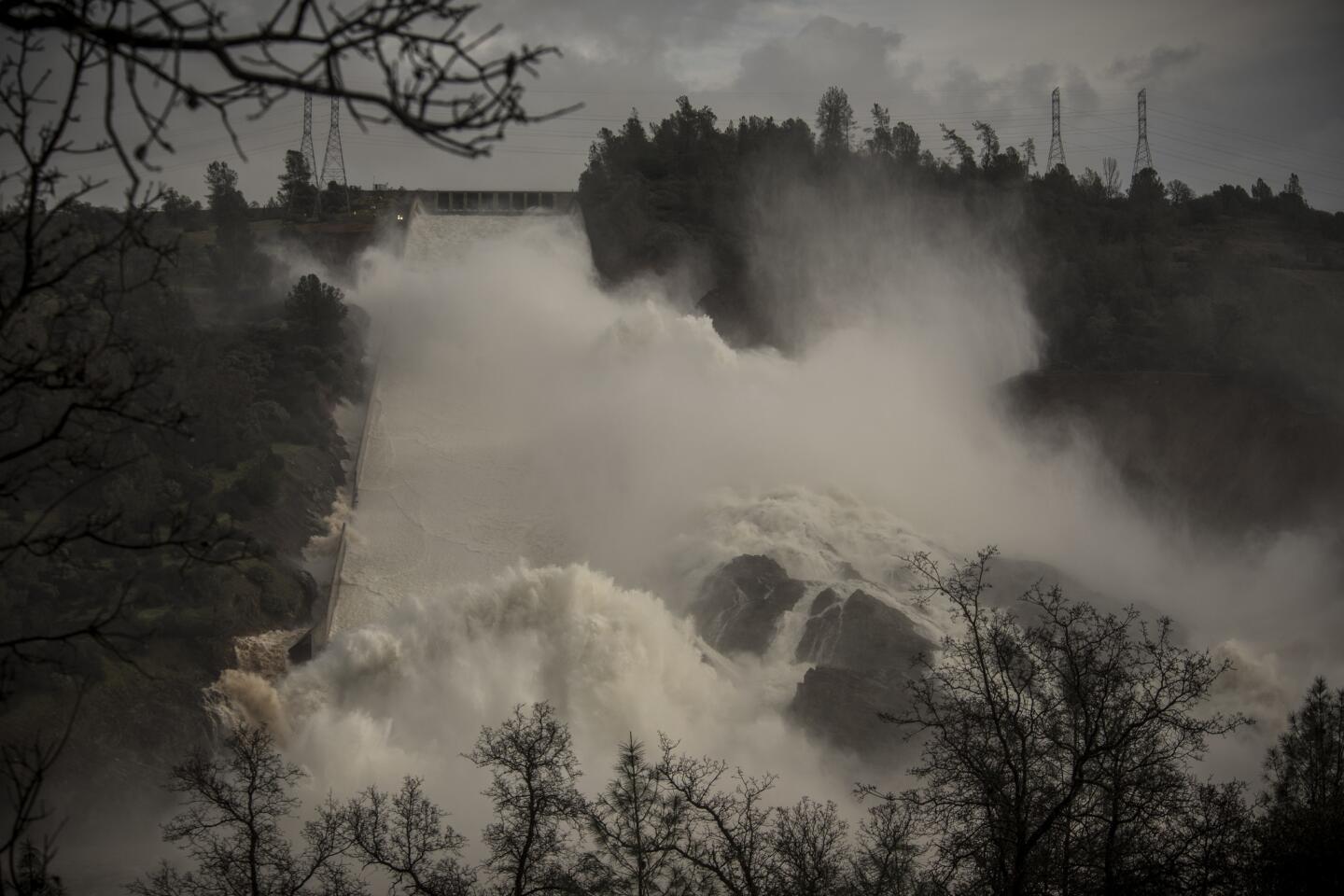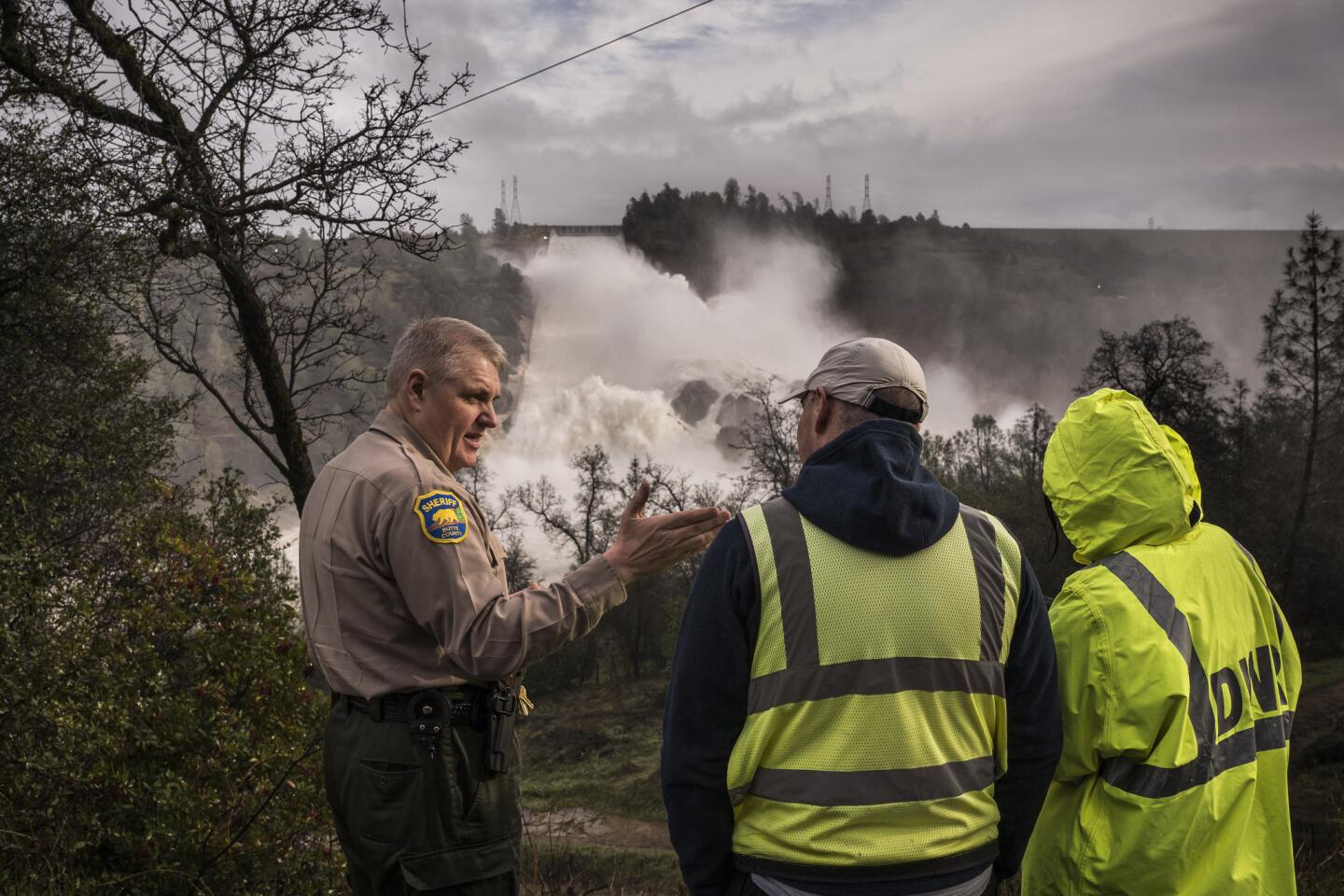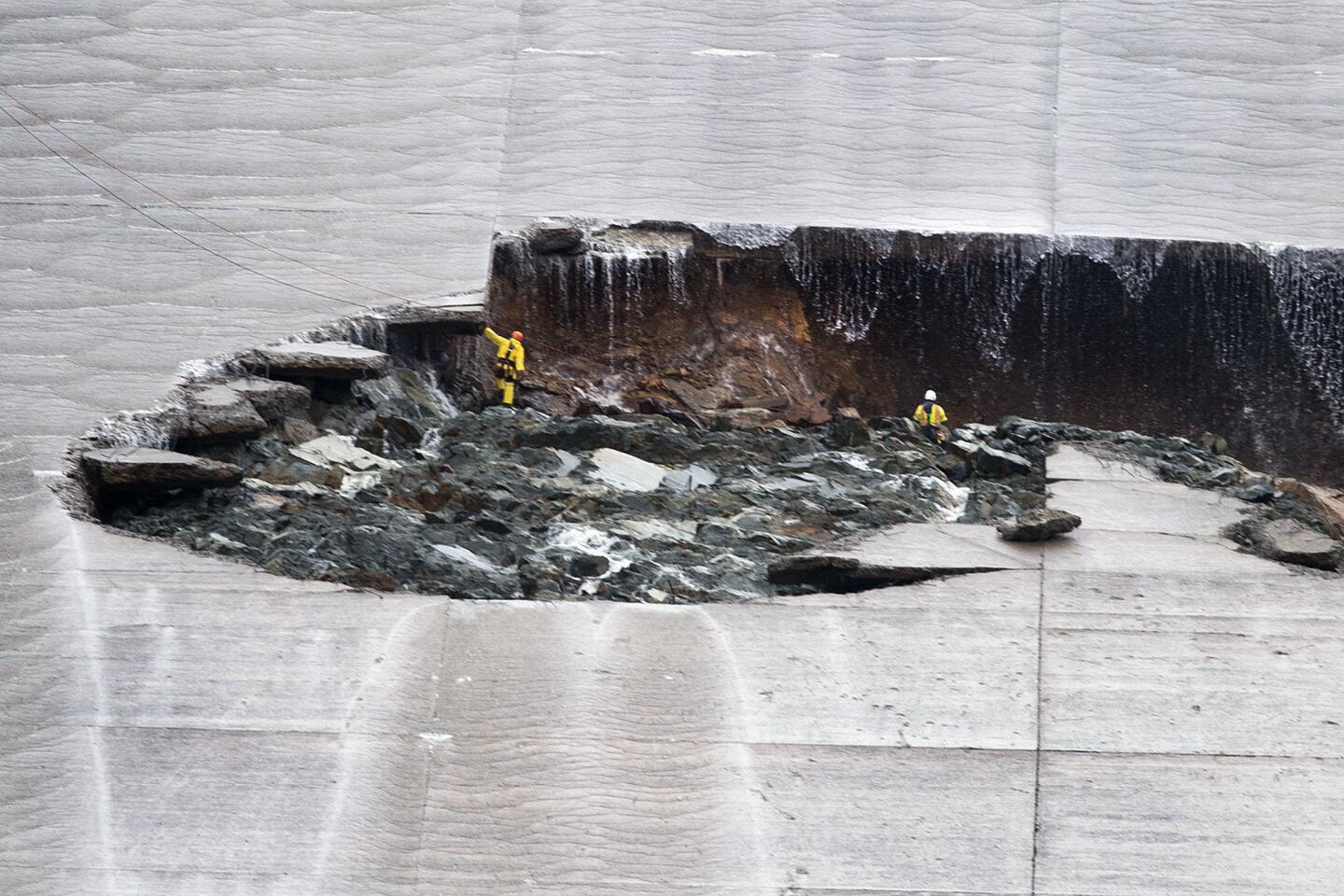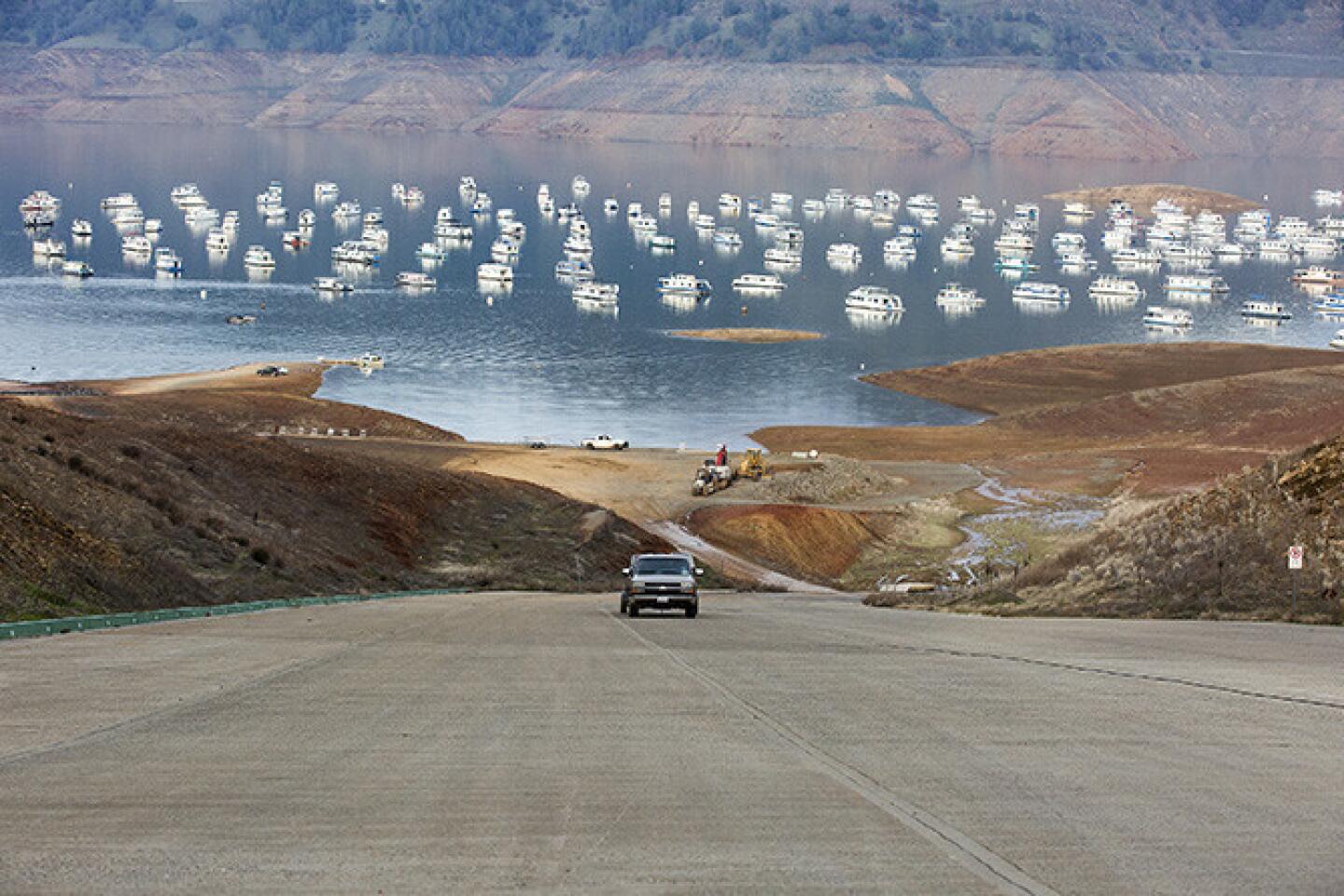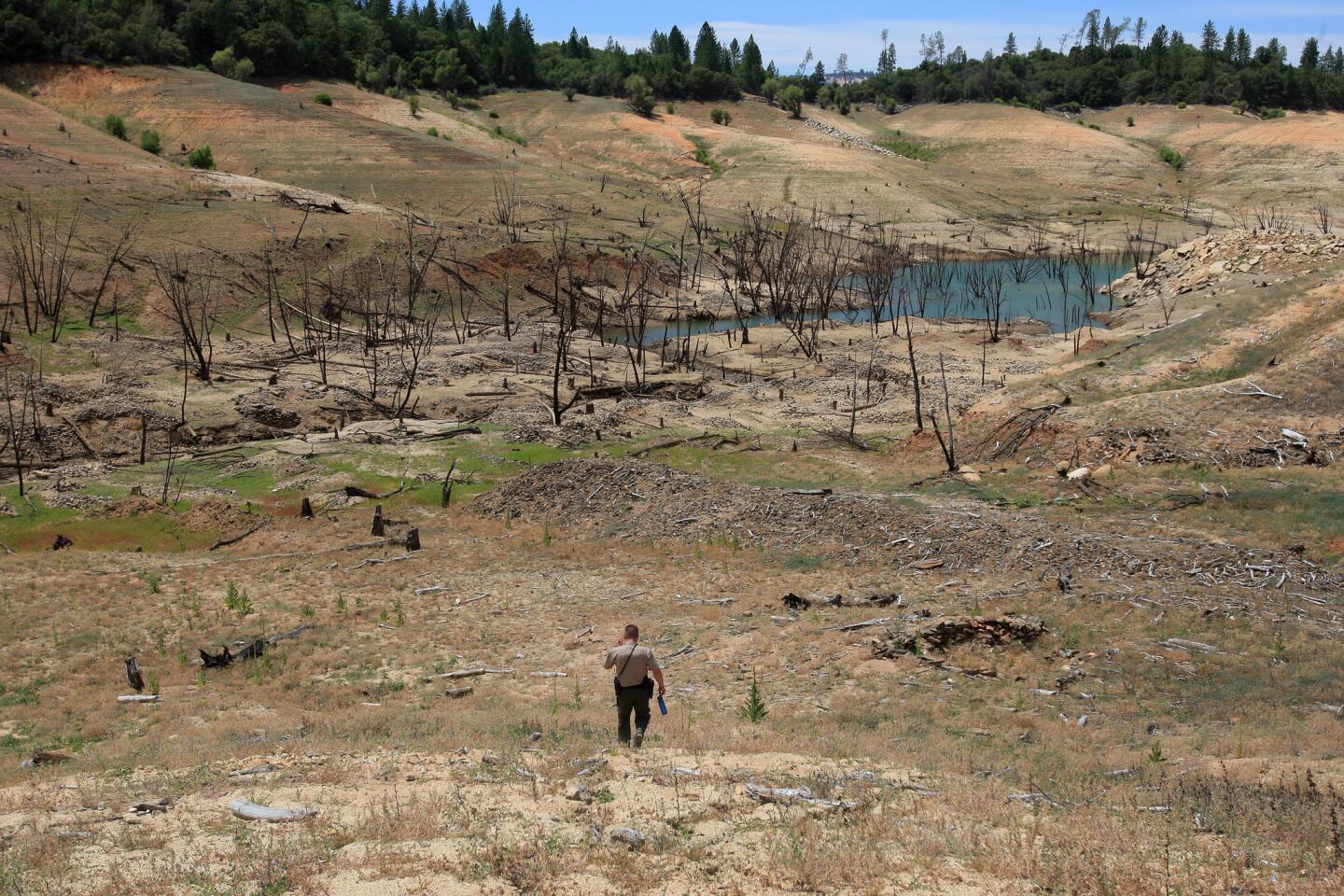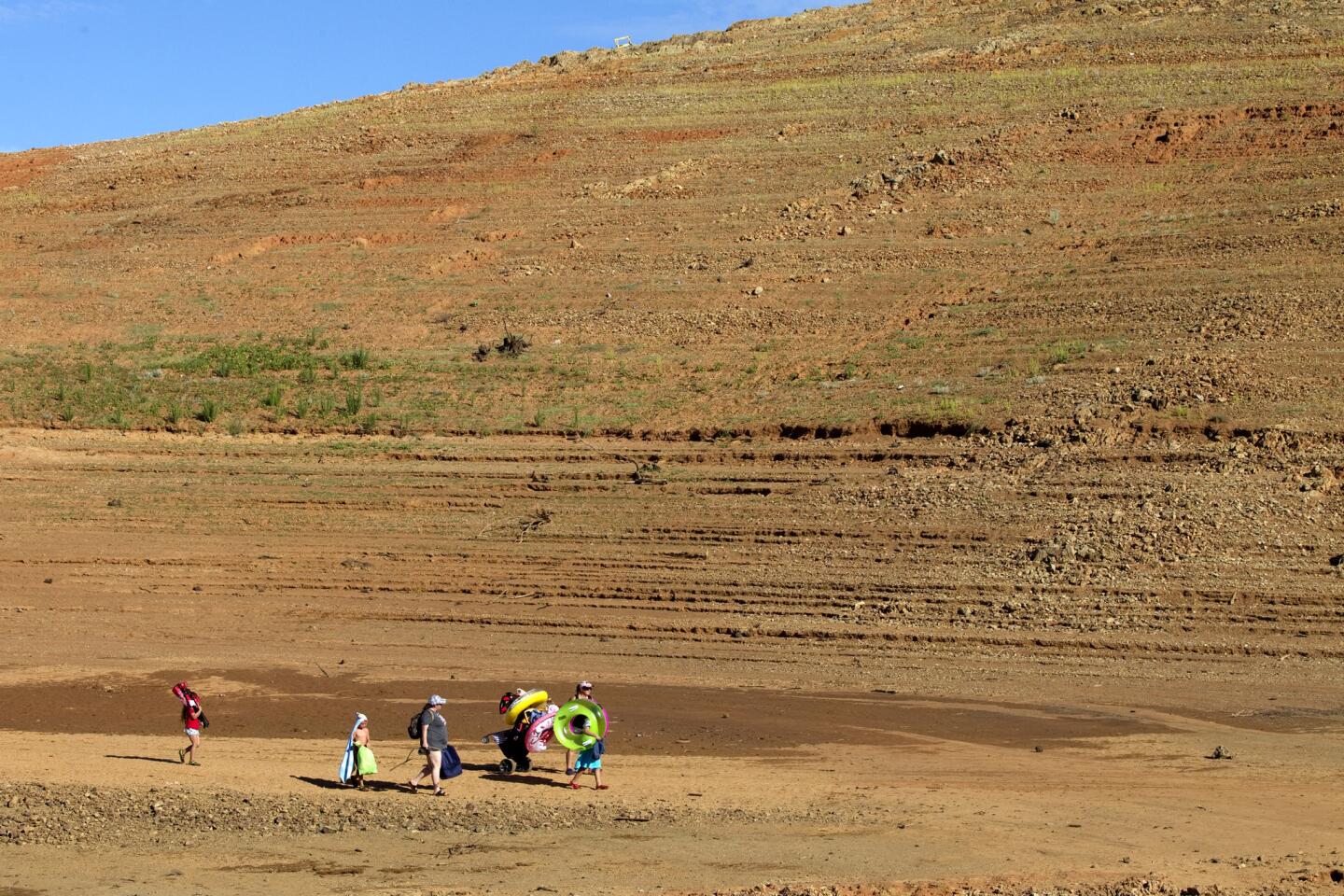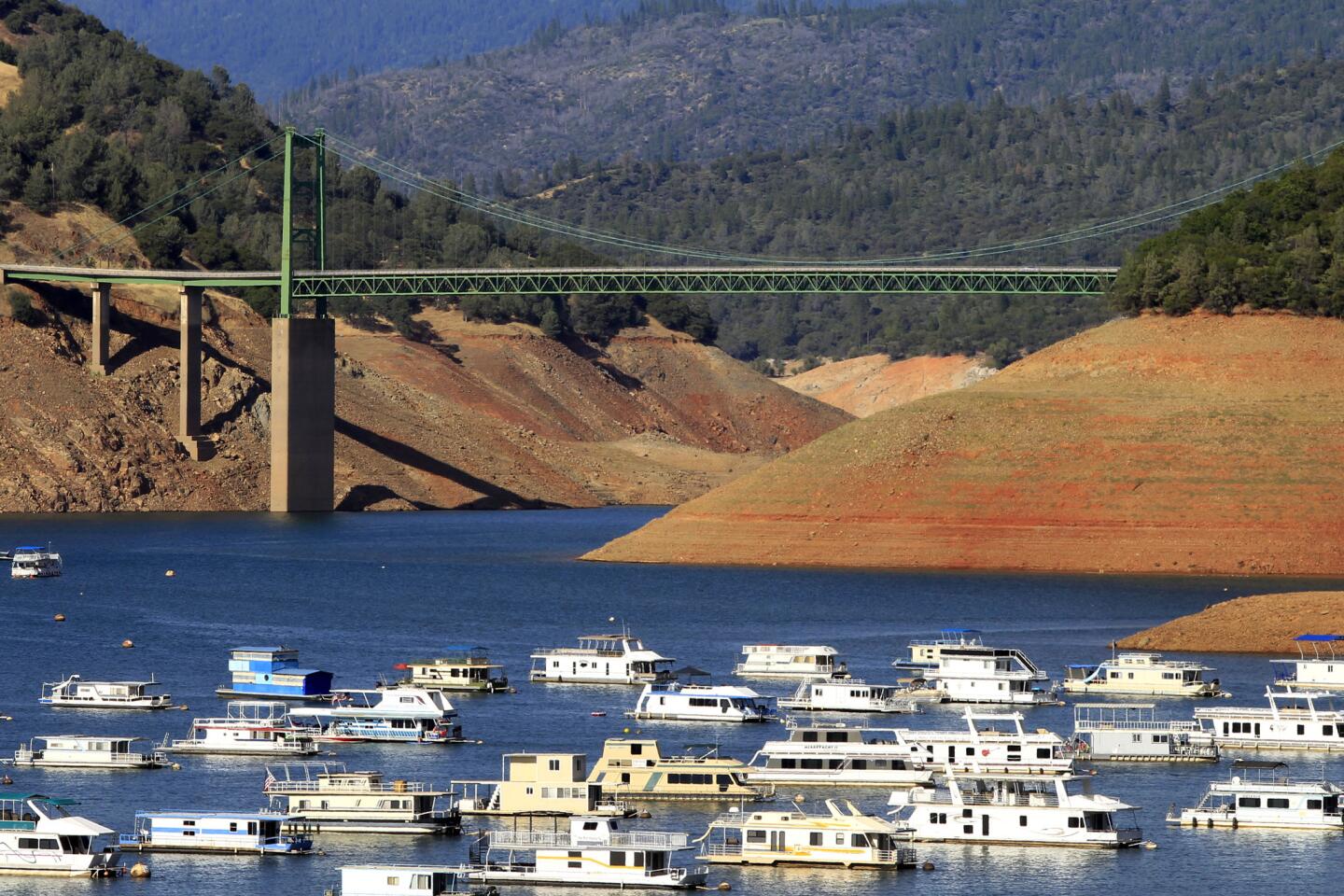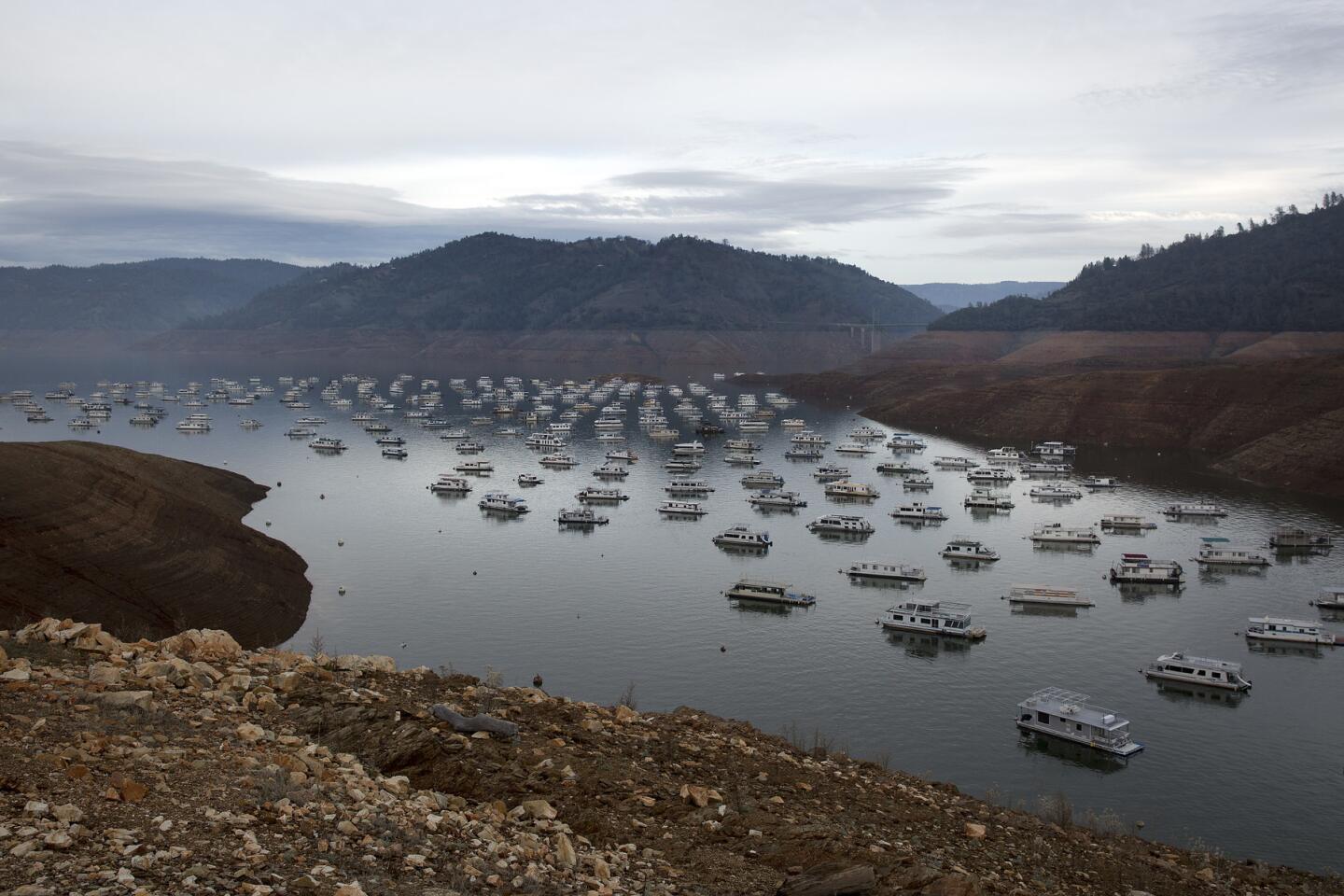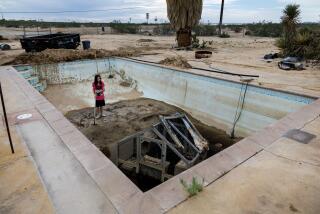At Oroville Dam, a break in the storms gives engineers hope
Reporting from OROVILLE, Calif. — Friday afternoon the sun peaked through the clouds above Lake Oroville and a rainbow arched over the Feather River.
It was a welcome sight for state engineers who were battling the lake’s worrisome rise with torrential releases down the reservoir’s broken concrete spillway.
The break in storms and a drop in the volume of water pouring into the huge reservoir gave dam operators hope that they could keep lake levels from hitting an elevation of 901 feet — the point at which uncontrolled flows would start washing down an unpaved emergency spillway that has never been used in Oroville’s 48-year history.
“The sun is coming out. The rain has stopped. The inflow has peaked,” said Eric See, a spokesman for the state Department of Water Resources. “We still don’t expect to use the auxiliary spillway.”
For much of Friday, managers were pushing water down the damaged spillway at the rate of 65,000 cubic feet per second, or more than 29 million gallons a minute. In the evening, they reduced it to 55,000 cfs.
The flows exploded into the air as they hit the deep gash that opened in the spillway this week. From there, the water carved into the sloping earth beside and beneath the chute, turning the ground the color of heavily creamed coffee and washing mud, rock and pieces of concrete into the Feather River below.
“It’s pretty impressive. I’ve never seen anything like it,” said Elberta Portman, 63, as she watched the clouds of mist rising from the spillway.
She had driven up from the Sacramento area with her husband, Dennis, 66. They hadn’t been to the lake for about 15 years, when they stayed on a houseboat.
Though optimistic that dam operators won’t have to use the emergency spillway over the weekend, crews continued to prepare the area — just in case.
Workers with the California Department of Forestry and Fire Protection used heavy equipment to clear trees and brush from the hillside route the water would take if it overflowed the 1,700-foot-long top of the emergency spillway.
Utility workers were preparing to move transmission poles out of the way. Booms and boats were brought in to collect debris and keep it from clogging the pool at the base of the dam and downstream diversion gates.
A gaping hole — some 250 feet long and 45 feet deep — appeared Tuesday in the lower part of the spillway, which sits on dirt. The state shut down releases for a time but then restarted them to counter inflows from the week’s storms.
“It’s a balancing act,” said water resources spokesman Doug Carlson.
Even if the emergency releases are triggered, department officials said it would not flood the Feather River.
A team of hydrologists, meteorologists and engineers concluded that the “river channel can accommodate whatever we throw at it today and over the weekend,” Carlson added.
State engineers repeated that Oroville’s earthen dam — a separate structure from the spillway — was not in any danger.
“There’s no erosion going on at Oroville Dam,” See said. “Oroville’s dam is completely intact. It is not in jeopardy in any way.”
State engineers don’t know what caused the collapse of the spillway section, which has further eroded from the pounding dam releases.
The structure is annually inspected by several agencies and was last repaired in 2013.
“We made repairs and everything checked out,” said water resources engineer Kevin Dossey. “Obviously, something has happened that we didn’t expect.”
He added that it was common for spillways to require repairs after drainage creates voids in the underlying soil.
In an interview, Dusty Myers, president of the Assn. of State Dam Safety Officials, agreed.
“It’s not uncommon to have an issue like this,” he said of the spillway hole — though he added he was not aware of any as large as the one that developed at Oroville.
It is also not unusual, Myers said, to have an unpaved emergency spillway that would erode if used.
At 770 feet high, Oroville is the tallest dam in the U.S. It was completed during the administration of Gov. Ronald Reagan and serves as the keystone for the State Water Project, which sends Northern California supplies south to the southern San Joaquin Valley and the urban Southland.
In January 1997, downstream towns were evacuated when the reservoir came within a foot of pouring down the emergency spillway into the swollen Feather River.
“People were told to pack up their stuff and get out,” recalled Mike Ramsey, the longtime Butte County district attorney.
Oroville didn’t flood then, but this week, Ramsey said, residents have been wondering: “Are we going to have to evacuate again? Are we going to have to start pulling stuff out?”
Still, with no evacuation order and the lake inflow dropping, locals were calm enough to go about their usual business Friday.
In a sign of confidence that things will be OK, Ramsey said the local rotary club hadn’t canceled a planned Saturday night dinner in the municipal auditorium, which sits on the river levee.
Megerian reported from Oroville, Serna and Boxall from Los Angeles.
ALSO
After battering the north, rains move into Southern California
High water releases have eroded the base of Lake Oroville’s spillway
Damage to Oroville Dam’s spillway worsens as officials consider emergency measures
More to Read
Sign up for Essential California
The most important California stories and recommendations in your inbox every morning.
You may occasionally receive promotional content from the Los Angeles Times.
